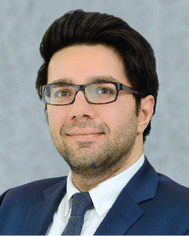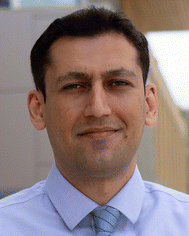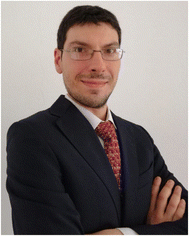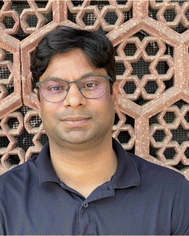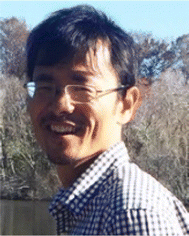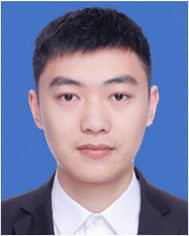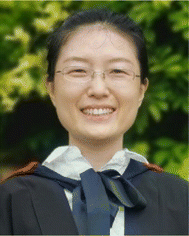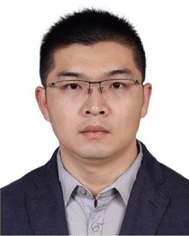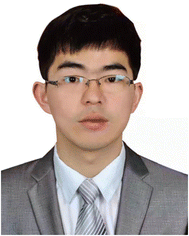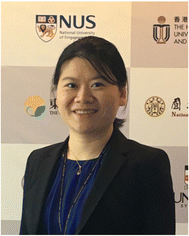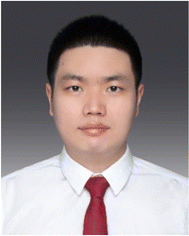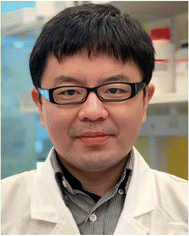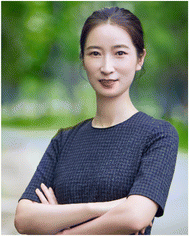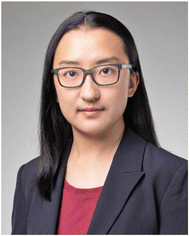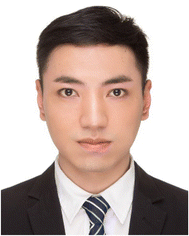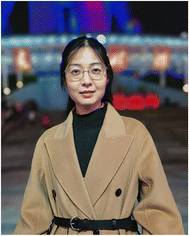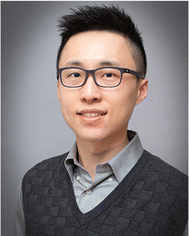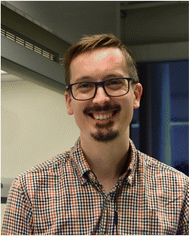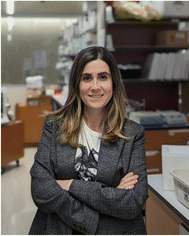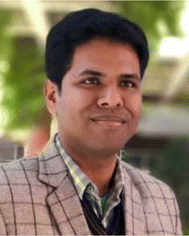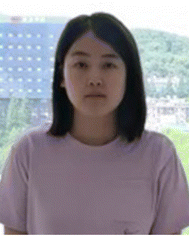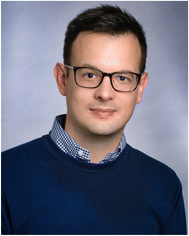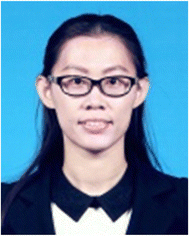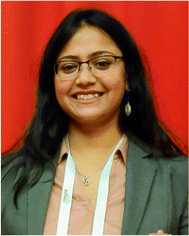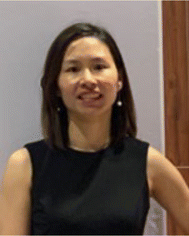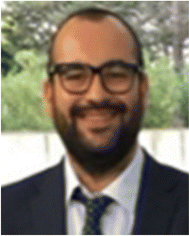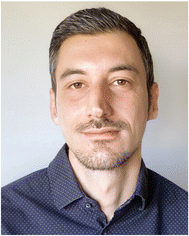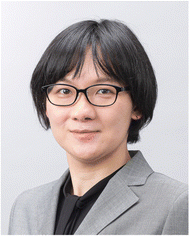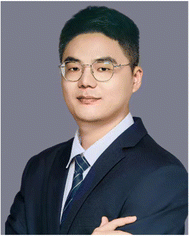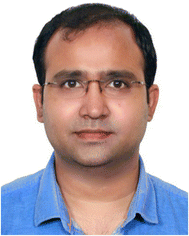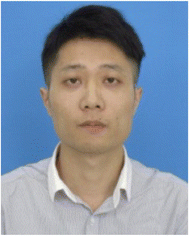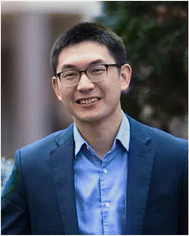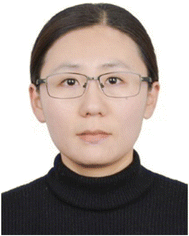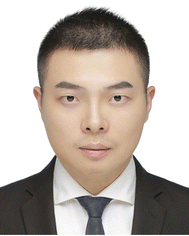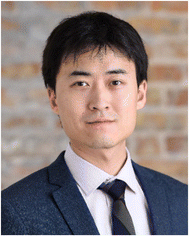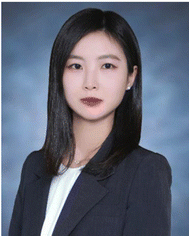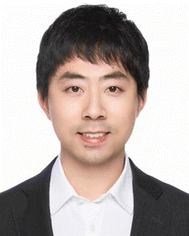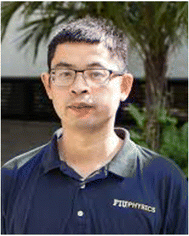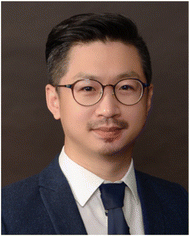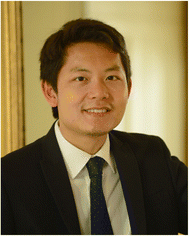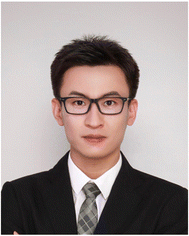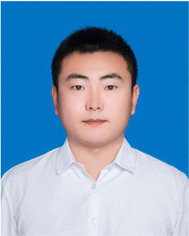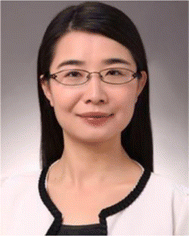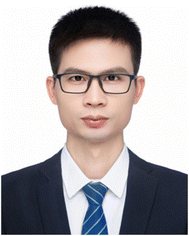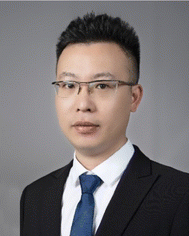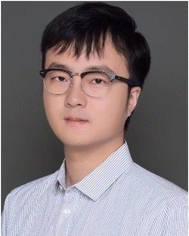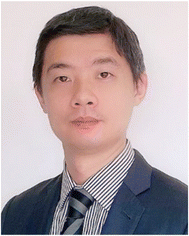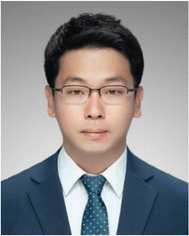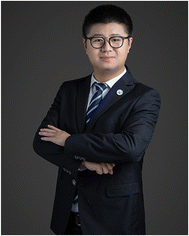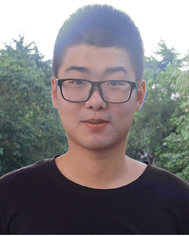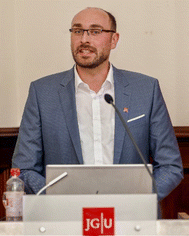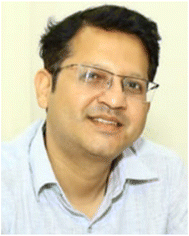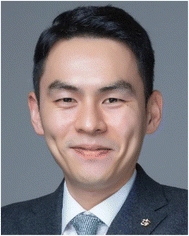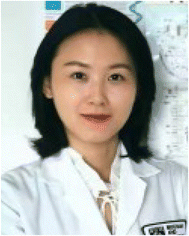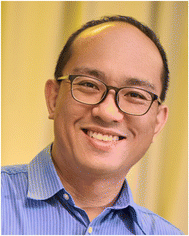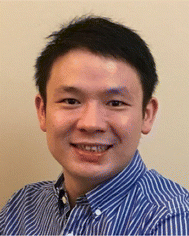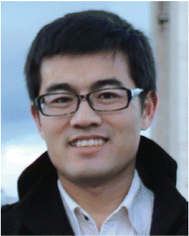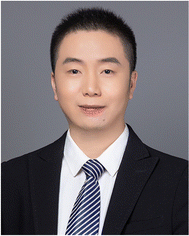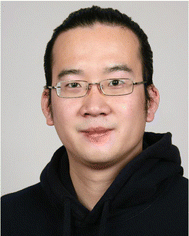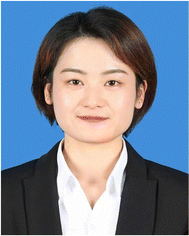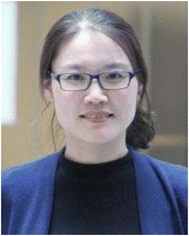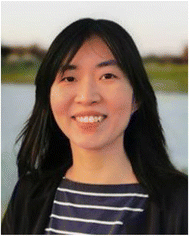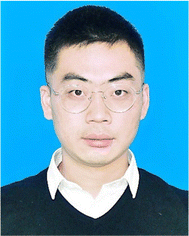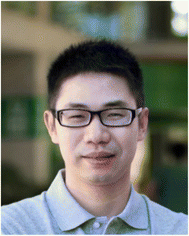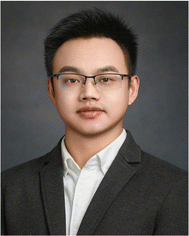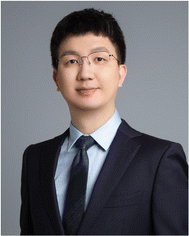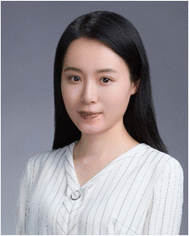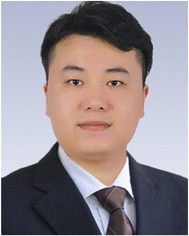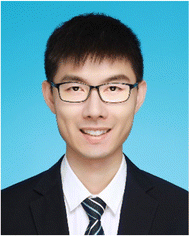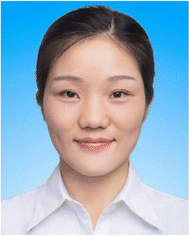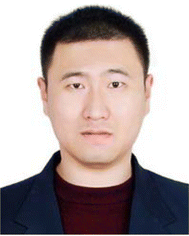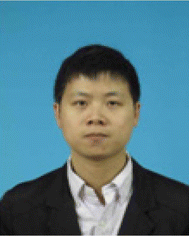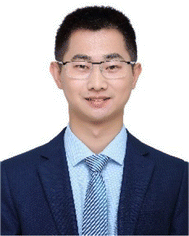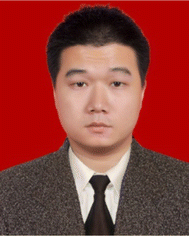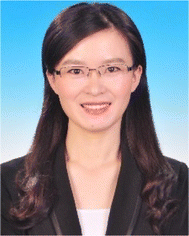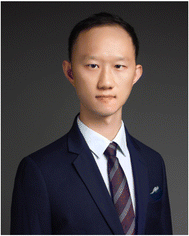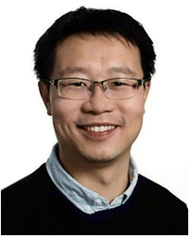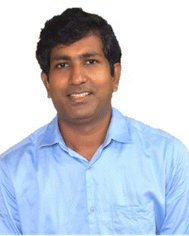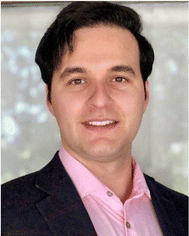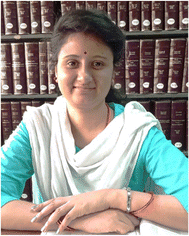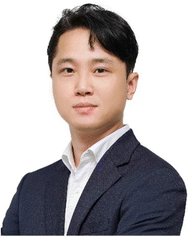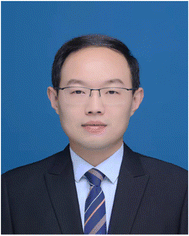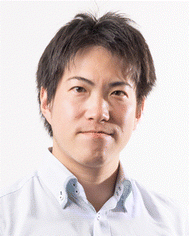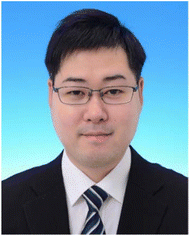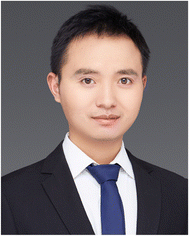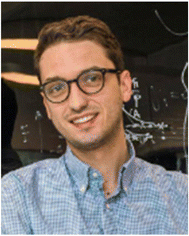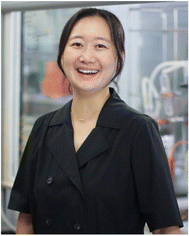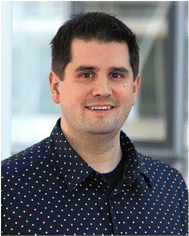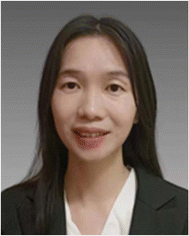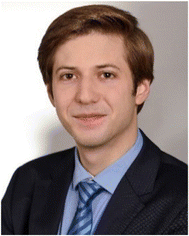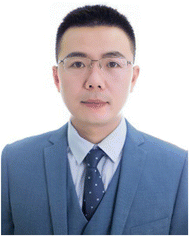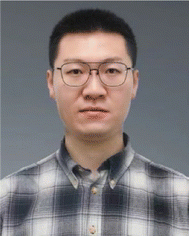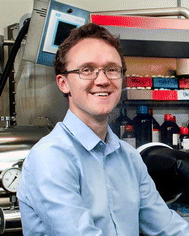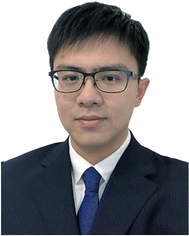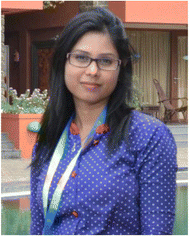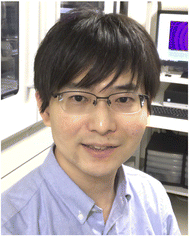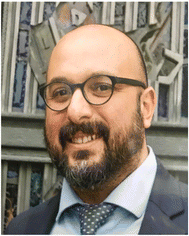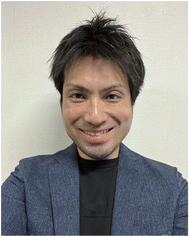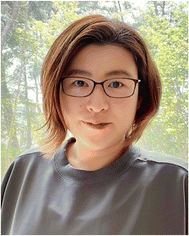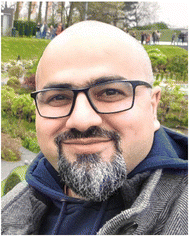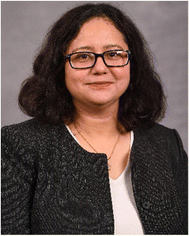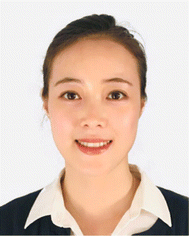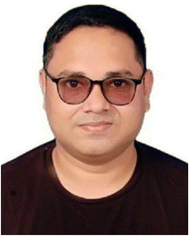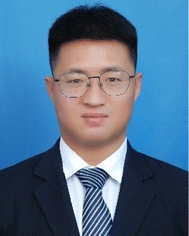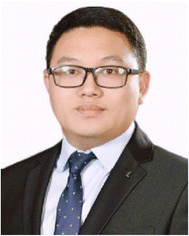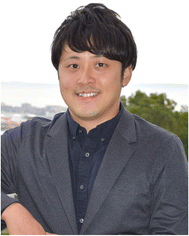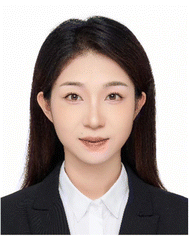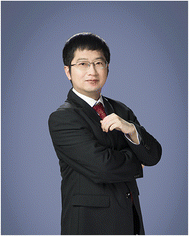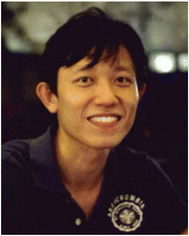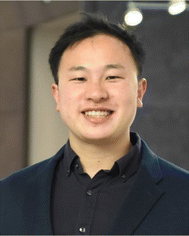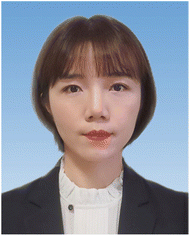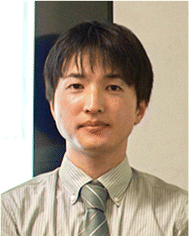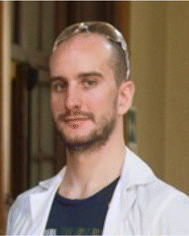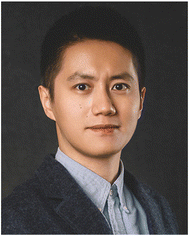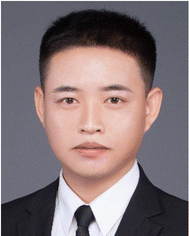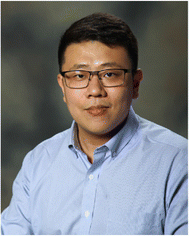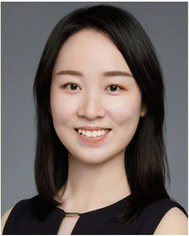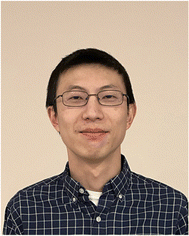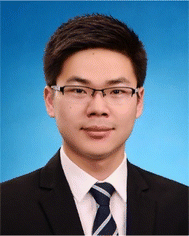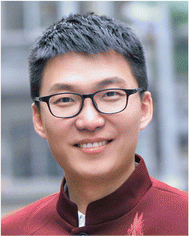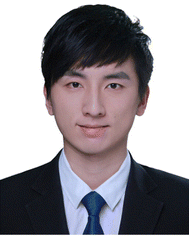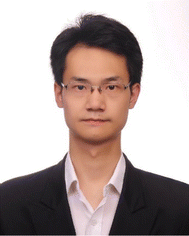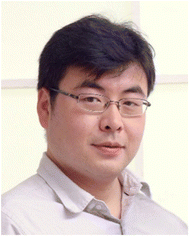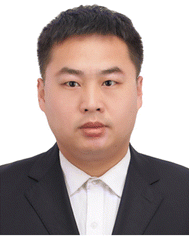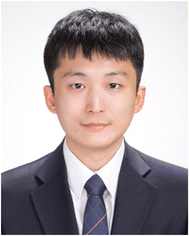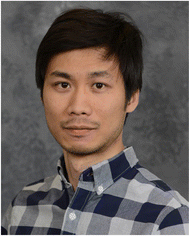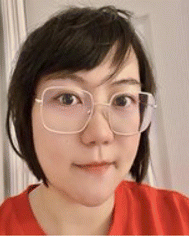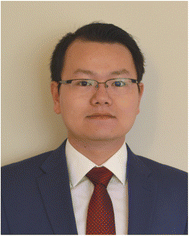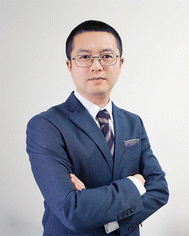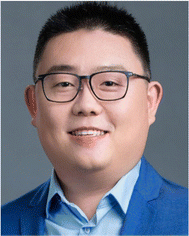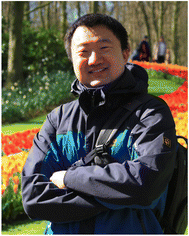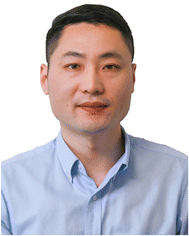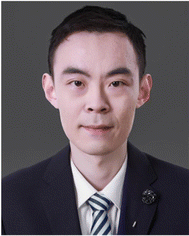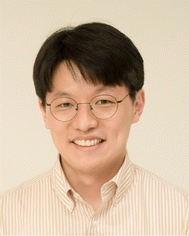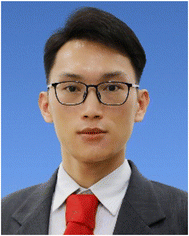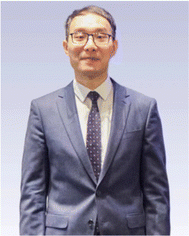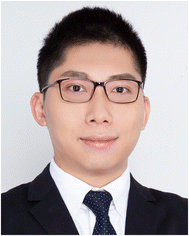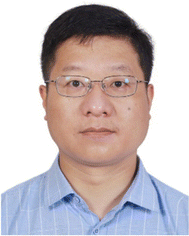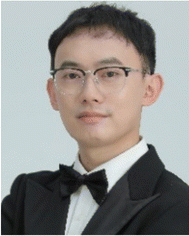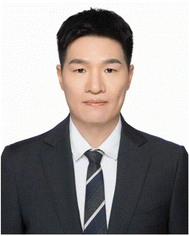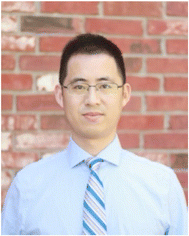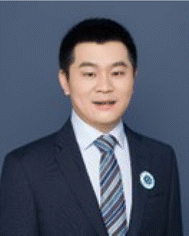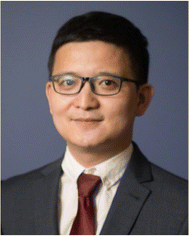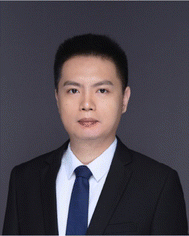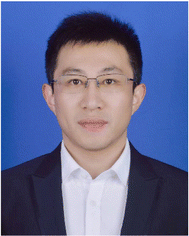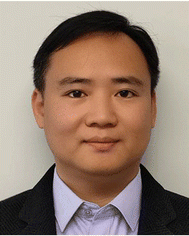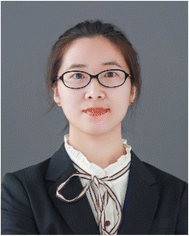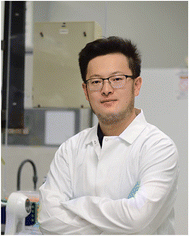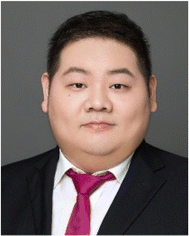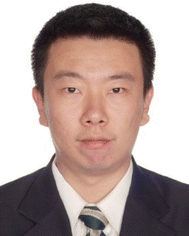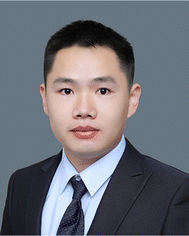DOI:
10.1039/D4NR90119C
(Profile)
Nanoscale, 2024,
16, 14537-14573
Nanoscale profiles: contributors to the 2024 Emerging Investigators collection
Abstract
This profile gathers together the biographies of our 2024 Emerging Investigators, exceptional nanoscientists in the early stages of their independent career. Congratulations to all of the researchers featured, find out more about them below.
Milad Abolhasani is an Associate Professor, ALCOA Scholar, and a University Faculty Scholar in the Department of Chemical and Biomolecular Engineering at North Carolina State University. He received his Ph.D. from the University of Toronto in 2014. Prior to joining NC State University in 2016, he was an NSERC Postdoctoral Fellow in the Department of Chemical Engineering at MIT. At NC State University, Dr Abolhasani leads a flow chemistry research group that studies self-driving labs tailored toward accelerated discovery, development, and manufacturing of advanced functional materials and molecules using autonomous experimentation.
His contribution to the 2024 Nanoscale Emerging Investigators collection can be read at https://doi.org/10.1039/D3NR05034C.
Mohammad Arjmand is a leading and award-winning researcher in the areas of nanotechnology and polymer science and engineering. Dr Arjmand is a faculty member (since 2018) at the University of British Columbia, Okanagan campus (UBCO). He is also a Canada Research Chair in Advanced Materials and Polymer Engineering and the lead of the Plastic Recycling Research Cluster at UBCO. Dr Arjmand directs the Nanomaterials and Polymer Nanocomposites Laboratory (NPNL), which focuses on the synthesis and engineering of multifunctional nanomaterials and polymer nanocomposites. Prior to joining UBCO, Dr Arjmand was a postdoctoral fellow at the Universities of Calgary and Toronto.
His contribution to the 2024 Nanoscale Emerging Investigators collection can be read at https://doi.org/10.1039/D3NR06478F.
Antonino Arrigo completed his Ph.D. in Chemistry at the University of Messina (Sicily) in collaboration with Arizona State University. After a few years as a Post-Doc at the University of Messina and University of Bologna (Italy), he spent 7 years working as a regulatory affairs specialist in the paint company Sherwin-Williams, based in Bologna. Since March 2023, he has been a Researcher at the University of Messina. His research focuses on the design, synthesis, and investigation of supramolecular systems for artificial photosynthesis. In parallel, he is also fabricating luminescent solar concentrators and studying the photophysical features and photovoltaic performances of the device.
His contribution to the 2024 Nanoscale Emerging Investigators collection can be read at https://doi.org/10.1039/D3NR05897B.
Deepak Asthana obtained his Ph.D. degree in Supramolecular and Materials chemistry from the School of Physical Sciences, Jawaharlal Nehru University, New Delhi, India. He was awarded a JSPS postdoctoral fellowship to work at the Department of Applied Chemistry, Kyushu University, Japan, where he explored the field of triplet–triplet annihilation-based photon up-conversion. Afterwards, he joined the ‘Molecular Magnets’ group at The University of Manchester, UK, where he worked on the synthesis and functionalisation of heterometallic {Cr
7Ni}-based multi-qubit systems. Currently, he is an Assistant Professor in the Department of Chemistry, Ashoka University, India. His current research interests include the design and synthesis of molecular materials for optoelectronic applications.
His contribution to the 2024 Nanoscale Emerging Investigators collection can be read at https://doi.org/10.1039/D3NR04184K.
Sviatoslav Baranets is an Assistant Professor of Chemistry at Louisiana State University. He obtained his Ph.D. in Inorganic Chemistry from the Institute of General and Inorganic Chemistry of the National Academy of Sciences of Ukraine in 2015. Later, he was a DAAD scholarship holder and worked as a visiting researcher at the Technische Universität Dresden, Germany. He was also a postdoctoral researcher at the University of Delaware. His research area primarily focuses on the design, synthesis, and characterization of emerging heteroanionic inorganic functional materials for energy applications.
His contribution to the 2024 Nanoscale Emerging Investigators collection can be read at https://doi.org/10.1039/D3NR06492A.
Chris Bartel is an Assistant Professor of Chemical Engineering and Materials Science at the University of Minnesota. He received his B.S. in Chemical Engineering from Auburn University and Ph.D. in Chemical Engineering at the University of Colorado and subsequently worked as a postdoctoral scholar at Berkeley. His research focuses on the design and discovery of solid-state materials using atomistic simulations.
His contribution to the 2024 Nanoscale Emerging Investigators collection can be read at https://doi.org/10.1039/D3NR06468A.
Aviru Kumar Basu is a Scientist and faculty member in the Department of Quantum Materials and Devices at the Institute of Nano Science and Technology, DST, Govt. of India in Mohali. His research focuses on 2D materials, biosensors, lab on chip, MEMS-based devices, photocatalysis, and gas sensing. During his Ph.D. studying under Professor Shantanu Bhattacharya at the Indian Institute of Technology, Kanpur, he contributed to the development of 2D material functionalized MEMS-based nano-cantilever sensors for rapid detection of trace analytes. Following his Ph.D., he conducted postdoctoral research at the Singapore University of Technology and Design and the National University of Singapore, with a focus on 3D printing and 2D materials based devices. Dr Basu's expertise spans various aspects of advanced materials and sensor technology.
His contribution to the 2024 Nanoscale Emerging Investigators collection can be read at https://doi.org/10.1039/D3NR05648A.
Ren Cai, a Professor at Hunan University, earned his Ph.D. in Analytical Chemistry from the University of Florida (USA) in 2017. Dr Cai's research interests focus on novel analytical technologies, nanomedicine, and novel biosensors. At present, Dr Cai has published over 70 peer-reviewed articles, including over 50 articles as the first author or corresponding author at
J. Am. Chem. Soc.,
Anal. Chem.,
etc. Dr Cai serves on the young editorial boards of
Collagen and Leather and
Exploration.
His contribution to the 2024 Nanoscale Emerging Investigators collection can be read at https://doi.org/10.1039/D3NR05231A.
Yahui Cai received his Ph.D. degrees in chemical engineering and technology and applied chemistry from Soochow University, China. He is currently an Associate Professor of the College of Materials Science and Engineering, Nanjing Forestry University, China. He mainly engages in the preparation and application of new multifunctional composite materials in the field of environmental remediation, including sewage treatment, seawater desalination and nanofiltration.
His contribution to the 2024 Nanoscale Emerging Investigators collection can be read at https://doi.org/10.1039/D3NR05196J.
Cassandra Callmann is an Assistant Professor and CPRIT Scholar in Cancer Research in the Department of Chemistry at the University of Texas at Austin. She earned her Ph.D. in Chemistry at the University of California, San Diego. Her graduate work was supported by fellowships from the Inamori Foundation, the ARCS Foundation, and the Cancer Researchers in Nanotechnology program (NIH R25T). She was recognized for her thesis research with an Outstanding Dissertation Award from the UC San Diego Department of Chemistry and Biochemistry. Following her Ph.D., Cassandra was an American Cancer Society Postdoctoral Fellow at Northwestern University. For her work as an early career researcher, she was selected as a 2019 CAS Future Leader by the Chemical Abstracts Service of the American Chemical Society. Her research at UT-Austin is focused on the development of carbohydrate-containing materials to probe the interface of chemistry, biology, and materials science.
Her contribution to the 2024 Nanoscale Emerging Investigators collection can be read at https://doi.org/10.1039/D3NR06154J.
Jing Cao is currently a project leader at the Institute of Materials Research and Engineering (IMRE), Agency for Science, Technology and Research (A*STAR), Singapore. She received her Ph.D. degree in Materials Science at the University of Cambridge in 2019. Her research is primarily focused on electronic transport, specifically in thermoelectrics and ferroelectrics, and bulk photovoltaic effects. Besides experiments, she also does first principles calculations to supplement her work. Outside research, she is active in outreach activities by serving on the scientific committee for Singapore Junior Chemistry Olympiad organized by the SNIC (Singapore National Institute of Chemistry).
Her contribution to the 2024 Nanoscale Emerging Investigators collection can be read at https://doi.org/10.1039/D3NR04584F.
Sheng Cao is an Associate Professor at Guangxi University. He earned his Ph.D. from the University of Science and Technology Beijing in 2016 and subsequently held the position of Research Fellow at the National University of Singapore from 2017 to 2018. His research focuses on colloidal nanocrystals and their utilization in the development of light-emitting diodes and electrochromic devices.
His contribution to the 2024 Nanoscale Emerging Investigators collection can be read at https://doi.org/10.1039/D3NR05050E.
Biao-Qi Chen received his Ph.D. degree in Biochemical Engineering in 2019 from Huaqiao University. He is currently an assistant professor at the Institute of Biomaterials and Tissue Engineering at Huaqiao University, China. His research interests include the fabrication of 2D and 3D nanoframeworks for drug delivery, and molecular imaging, focusing on generating bio-inspired nanomaterials for cancer theranostics.
His contribution to the 2024 Nanoscale Emerging Investigators collection can be read at https://doi.org/10.1039/D3NR05495K.
Fang Chen is an instructor in the Department of Ophthalmology at Stanford University. Her research focuses on materials science and engineering approaches to biological or biomedical problems. Specifically, she is dedicated to understanding the design principles and developing nanoscale and macroscale biomaterials for medical applications, experimental investigations of cell therapies, and integration across multiple disciplines including materials science, chemistry, medical imaging, and life science. Her ongoing projects are developing nanoparticles (funded by the NIH K99/R00 award) and hydrogels to treat various eye diseases. Dr Chen has published over 30 peer-reviewed papers and co-authored 4 patents.
Her contribution to the 2024 Nanoscale Emerging Investigators collection can be read at https://doi.org/10.1039/D4NR00195H.
Shuai Chen obtained his B.S. degree from the University of Science and Technology Beijing in 2011 and his Ph.D. degree from Tsinghua University, Beijing, China, in 2016. From 2016 to 2022, he worked as a research scientist in the Institute of High Performance Computing, A*STAR, Singapore. He joined Shanghai University as an associate professor in 2023. His research area is micro–nano mechanics and multiscale mechanics. He has published 50+ papers in SCI journals, such as
Mater. Today,
Sci. Adv.,
Nat. Commun.,
ACS Nano, and
Acta Mater. He has also been invited to write one English book chapter published by Springer Nature. His total citations are 1900+ (
h-index: 22) from Google Scholar statistics.
His contribution to the 2024 Nanoscale Emerging Investigators collection can be read at https://doi.org/10.1039/D3NR06133G.
Wei Chen received his B.S. and M.S. degrees in Chemistry from National Taiwan University. He then received his Ph.D. degree in Chemistry from the University of California Los Angeles (UCLA) under the supervision of Prof. Jeffrey I. Zink. Following this, he joined Prof. Wei Tao's and Prof. Omid Farokhzad's labs at Brigham and Women's Hospital, Harvard Medical School as a research fellow. He is currently an assistant professor and principal investigator at the Genomics Research Center, Academia Sinica. His research interests include nanomedicine and biomaterials, focusing on their applications in the treatment of cancer, cardiovascular diseases, and other inflammatory diseases.
His contribution to the 2024 Nanoscale Emerging Investigators collection can be read at https://doi.org/10.1039/D3NR06333J.
Wenwen Chen is an associate professor at the Department of Biomedical Engineering, School of Medicine, Shenzhen University. She obtained her B.Sc. degree from China Agricultural University (2010), followed by a Ph.D. (2015) from the National Center for Nanoscience and Technology, Chinese Academy of Sciences. She joined Shenzhen University Health Science Center as a lecturer in 2015. From June 2019 to June 2020, she was a visiting scholar at Harvard University. Since 2020, she has been an associate professor (PI) at Shenzhen University. Her main research interests are focused on the development of advanced diagnostic and therapy methods based on microfluidics and nanotechnology.
Her contribution to the 2024 Nanoscale Emerging Investigators collection can be read at https://doi.org/10.1039/D3NR05459D.
Ye Chen is currently an assistant professor at the Department of Chemistry, The Chinese University of Hong Kong. She received her B.Eng. and Ph.D. degrees (supervisor: Prof. Hua Zhang) in materials science from Nanyang Technological University (Singapore) in 2015 and 2019, respectively. Her current research interests focus on wet-chemical synthesis of novel low-dimensional nanomaterials and their applications in catalysis and clean energy.
Her contribution to the 2024 Nanoscale Emerging Investigators collection can be read at https://doi.org/10.1039/D4NR00561A.
Zhou Chen received his Ph.D. in physical chemistry from Xiamen University in 2020. Subsequently in 2020, he joined College of Materials of Xiamen University, as an Assistant Professor. His current research interests mainly focus on the development of new catalytic materials for photo-/electrolytic water splitting, carbon dioxide reduction, and biomass conversion, and the in-depth understanding of catalytic mechanisms.
His contribution to the 2024 Nanoscale Emerging Investigators collection can be read at https://doi.org/10.1039/D3NR05518C.
Hongfei Cheng is currently an assistant professor at Tongji University, Shanghai, China. She received her Ph.D. in 2020 from Nanyang Technological University (NTU), Singapore, under the supervision of Prof. Hua Zhang. Then, she worked as a postdoctoral researcher at NTU and the Agency for Science, Technology and Research (A*STAR), Singapore. She joined Tongji University in November 2022 and established her research group, which is currently developing new nanomaterials for catalytic-related applications, such as electrocatalytic hydrogen generation, fuel cells, and nanozymes.
Her contribution to the 2024 Nanoscale Emerging Investigators collection can be read at https://doi.org/10.1039/D4NR00155A.
Henry Chu is an Assistant Professor at the University of Florida (UF). He obtained an M.Phil. from The University of Hong Kong and a Ph.D. from Cornell University. He was a Postdoctoral Fellow at Carnegie Mellon University. His research group is developing predictive computational tools to address the National Academy of Engineering Grand Challenges in soft matter transport and design, collaborating with experimental groups to translate knowledge into applications. His work has been recognized through awards, including the UF Global Faculty Fellowship, ACS PRF Doctoral New Investigator Grants, and U.S. DOE Geosciences Research Grants. He welcomes collaboration with academia, government agencies, and industry sponsors.
His contribution to the 2024 Nanoscale Emerging Investigators collection can be read at https://doi.org/10.1039/D3NR06152C.
Adam J. Clancy is a Royal Society URF and Lecturer of Inorganic Chemistry at UCL Chemistry. His work revolves around the redox chemistry and spontaneous dissolution of high aspect ratio nanomaterials which are both used in practical energy applications and studied intrinsically to provide fundamental insight into dissolution and nanoscale charged interfaces. Prior to his current position, he undertook his Ph.D. at Imperial College London under Prof. Shaffer on carbon nanotube structural composites (and still holds the record strength for PVC composites), having initially studied his MChem at Cardiff University.
His contribution to the 2024 Nanoscale Emerging Investigators collection can be read at https://doi.org/10.1039/D3NR05416K.
Charles E. Creissen is a Lecturer in Physical Chemistry at Keele University, UK. He received his Ph.D. in 2019 from the University of Cambridge, before moving to the Collège de France, Paris, as a Postdoctoral Research Associate and subsequently Research Engineer. In 2022, Charles moved to Keele University to establish his research group, working on the development of electrocatalysts for the sustainable production of commodity chemicals from CO
2 and waste materials.
His contribution to the 2024 Nanoscale Emerging Investigators collection can be read at https://doi.org/10.1039/D3NR05547G.
Irene de Lázaro started her independent lab at NYU in January 2023 after completing her Ph.D. at UCL and postdoctoral positions at The University of Manchester and Harvard University. Irene is a pharmacist by training, interested in nanomedicine and drug delivery. During her training, she developed
in vivo cell reprogramming technologies for tissue regeneration, including skeletal and cardiac muscle. Most recently, she discovered that cells in the aged heart can be rejuvenated
via partial reprogramming. In her own lab, she is using her nanomedicine and cell reprogramming expertise to bring these therapies closer to the clinic.
Her contribution to the 2024 Nanoscale Emerging Investigators collection can be read at https://doi.org/10.1039/D4NR00019F.
Ramendra Sundar Dey is a Scientist at Institute of Nano Science and Technology, Mohali, India. Previously, he was a Hans Christian Ørsted postdoc fellow at DTU, Denmark. He received his Ph.D. in Chemistry from IIT Kharagpur, India. He is involved in research in the field of electrochemistry of nanomaterials focusing on energy storage, conversion, electrocatalysis, and ammonia synthesis. He has been honored with a number of prestigious National and International recognitions, like the INSPIRE Faculty Award,
Journal of Materials Chemistry A Emerging Investigator and
ACS Applied Energy Materials Early Career Energy Scientists. He is an Associate of IASc Bengaluru and member of INYAS, INSA.
His contribution to the 2024 Nanoscale Emerging Investigators collection can be read at https://doi.org/10.1039/D3NR02862C.
Si-Jing Ding received her Ph.D. degree from Wuhan University under the supervision of Prof. Qu-Quan Wang in 2016. She went on to work as a postdoc at Wuhan University from 2016 to 2018. She was a visiting scholar at the Chinese University of Hong Kong under the supervision of Prof. Jian-Fang Wang from 2017 to 2018. Currently, she is a full professor in the School of Mathematics and Physics at China University of Geosciences (Wuhan). She is mainly devoted to the study of plasmonic nanophotonics and nonlinear optics.
Her contribution to the 2024 Nanoscale Emerging Investigators collection can be read at https://doi.org/10.1039/D3NR06675D.
Luka Dordevic obtained his Ph.D. from the University of Trieste, working with Prof. Bonifazi. During his Ph.D. he was a visiting scholar at the Broad Institute of MIT and Harvard University. After graduation, he performed postdoctoral research with Prof. Prato (University of Trieste) and Prof. Bonifazi (Cardiff University). He then joined the group of Prof. Stupp (Northwestern University) as a fellow at the Center for Bio-inspired Energy Science. Recently, Luka joined the Department of Chemical Sciences at the University of Padova. Here, thanks to the ERC starting grant, he is creating a team to investigate strategies to convert, store and use solar energy.
His contribution to the 2024 Nanoscale Emerging Investigators collection can be read at https://doi.org/10.1039/D4NR00383G.
Wenna Du is an associate professor at the National Center for Nanoscience and Technology (NCNST), China. She received her Ph.D. degree in materials physics and chemistry from the Institute of Semiconductors, Chinese Academy of Sciences in 2016. After that, she joined the NCNST as a research assistant professor and became an associate professor in 2019. Her research focuses on light–matter interactions of perovskites by optical spectroscopy approaches.
Her contribution to the 2024 Nanoscale Emerging Investigators collection can be read at https://doi.org/10.1039/D3NR05450K.
Soumi Dutta is currently a postdoctoral research fellow in the Materials Engineering Department at the Indian Institute of Science (IISc), Bangalore, supported by the IoE IISc post-doctoral fellowship. She earned her Ph.D. in 2022 from the School of Water Resources at the Indian Institute of Technology Kharagpur (IIT Kharagpur). Prior to that, she obtained her Master's in Engineering (M.E.) degree from Jadavpur University in 2016 and her Bachelor's (B.E.) degree in Civil Engineering from the University of Burdwan in 2013. Dr Dutta's research focuses on the synthesis of cutting-edge nanomaterials and IPN-based membranes and hydrogels for environmental remediation, particularly in water treatment. She has contributed to this field through publishing several research articles and active participation in international conferences with fellowship support. Her dedication extends to protecting natural resources, particularly water, from emerging contaminants using advanced treatment solutions. Beyond her academic pursuits, she enjoys classical dancing, traveling, drawing, crafting, gardening, and exploring diverse cuisines.
Her contribution to the 2024 Nanoscale Emerging Investigators collection can be read at https://doi.org/10.1039/D3NR06115A.
Austin M. Evans is an Assistant Professor at the University of Florida where he holds appointments in Chemistry and Materials Science & Engineering. Prior to joining the University of Florida, Austin studied at Columbia University as a Postdoctoral Schmidt Science Fellow with Latha Venkataraman and Colin Nuckolls. Before his postdoctoral training, Austin completed his Ph.D. in Chemistry at Northwestern University as an NSF Graduate Research Fellow and an International Institute for Nanotechnology Ryan Fellow under the guidance of William Dichtel.
His contribution to the 2024 Nanoscale Emerging Investigators collection can be read at https://doi.org/10.1039/D4NR00292J.
Ling Fei received her B.S. in Applied Chemistry from Shantou University in 2010 and her Ph.D. in Chemical Engineering from New Mexico State University in 2014. She served as a postdoctoral researcher in the School of Chemical and Biomolecular Engineering at Cornell University from 2014 to 2016. She is currently an Assistant Professor in the Department of Chemical Engineering at The University of Louisiana at Lafayette. Her research group focuses on the design, synthesis, and engineering of nanostructured materials and their composites for various applications, including energy storage and conversion, surface coating, and catalysis.
Her contribution to the 2024 Nanoscale Emerging Investigators collection can be read at https://doi.org/10.1039/D4NR00401A.
Giacomo Filippini obtained his master's degree in industrial chemistry from the University of Bologna (Italy). In 2013 he joined the group of Prof. Paolo Melchiorre at ICIQ in Tarragona (Spain), where he undertook his doctoral studies. In 2017, he started a postdoctoral appointment in the group of Prof. Maurizio Prato at the University of Trieste (Italy), where he is currently working as an assistant professor, investigating the use of carbon-based nanomaterials to design novel organic transformations.
His contribution to the 2024 Nanoscale Emerging Investigators collection can be read at https://doi.org/10.1039/D3NR06669J.
Riccardo Frisenda earned his Ph.D. title from TU Delft in 2016 under the supervision of Prof. van der Zant with a thesis about electrical transport through single-molecules contacted by movable nano-electrodes. After his Ph.D., RF moved as a postdoc to the laboratory of Dr Castellanos-Gomez in IMDEA Nanoscience and later in the Instituto de Ciencia de Materiales de Madrid (ICMM) to study optoelectronics devices based on 2D materials, strain in 2D materials and 2D metal–2D semiconductor interfaces. In 2022 RF moved back to his alma mater, La Sapienza University, where he currently investigates spectroscopy in 2D materials and 2D device physics.
His contribution to the 2024 Nanoscale Emerging Investigators collection can be read at https://doi.org/10.1039/D3NR06535A.
Mao Fukuyama is an associate professor in the Institute of Multidisciplinary Research for Advanced Materials (IMRAM), Tohoku University. She received her Ph.D. in 2014 from The University of Tokyo under the supervision of Prof. Akihide Hibara. She worked as a Research Fellow of the Japan Society for the Promotion of Science at Tokyo Institute of Technology (2014–2015) and an assistant professor at Kyoto Institute of Technology (2015–2016). In 2017, she moved to IMRAM, Tohoku University. Her current research interests focus on the development of quantitative analytical methods for chemical/biochemical interfacial phenomena at the micro- and nanoscale by using microfluidics.
Her contribution to the 2024 Nanoscale Emerging Investigators collection can be read at https://doi.org/10.1039/D3NR06121C.
Libo Gao is an Associate Professor at Xiamen University. He received his Ph.D. in Mechanical Engineering from the City University of Hong Kong in 2018. Prior to joining Xiamen University, he worked as a Research Associate at City University of Hong Kong and an Associate Professor at Xidian University. His research focuses on wearable and flexible hybrid electronics and microsystems, such as flexible and stretchable electronics, and flexible pressure and strain sensors. He has published more than 50 peer-reviewed scientific papers in journals such as
Nature Communications,
Materials Today,
Nano–
Micro Letters and
Nanoscale as first or corresponding author.
His contribution to the 2024 Nanoscale Emerging Investigators collection can be read at https://doi.org/10.1039/D3NR06664A.
Anupam Giri is currently an assistant professor of chemistry at the Faculty of Science, University of Allahabad, Prayagraj, India. He received his B.Sc. (2007) and M.Sc. (2009) degrees in chemistry from the University of Calcutta (India). He completed his Ph.D. degree (chemistry, 2014) at S. N. Bose National Centre for Basic Sciences, India. As a postdoctoral fellow, he joined Prof. Unyong Jeong's group in 2014 and worked until 2020 at the Department of Materials Science and Engineering, POSTECH, Korea, before being promoted to the post of a research associate professor in the same department, where he worked until 2021. His research interests focus on the synthesis and electronic applications of two-dimensional materials.
His contribution to the 2024 Nanoscale Emerging Investigators collection can be read at https://doi.org/10.1039/D3NR06678A.
Nicholas Glavin, a Senior Materials Engineer at the Air Force Research Laboratory (AFRL), has dedicated his early career research towards nanotechnology solutions for electronics, sensing, and defense-related applications. Holding a Ph.D. in Mechanical Engineering from Purdue University and an M.S./B.S. in Chemical Engineering from the University of Dayton, he is recognized for his expertise in nanomaterial synthesis, processing and implementation into relevant applications. His research area focuses on two dimensional (2D) materials, 2D/3D integration, organic electronic materials, and heterostructures for microelectronics, chemical/biological sensors, and extreme environment electronics.
His contribution to the 2024 Nanoscale Emerging Investigators collection can be read at https://doi.org/10.1039/D3NR05798D.
Wanbing Gong received his Ph.D. degree from the University of Science and Technology of China in 2018 under the supervision of Professor Huijun Zhao. Then, he joined the Hefei Institutes of Physical Science, Chinese Academy of Sciences as a postdoc. He is currently a research associate professor at the University of Science and Technology of China. His current research interests focus on searching for new nonprecious catalytic materials and novel catalytic systems to meet the need of industries.
His contribution to the 2024 Nanoscale Emerging Investigators collection can be read at https://doi.org/10.1039/D3NR05207A.
Xiaodan Gu received his Ph.D. from the Department of Polymer Science and Engineering at the University of Massachusetts Amherst in 2014. Subsequently, he did post-doctoral study at Stanford University and SLAC National Accelerator Laboratory. Since 2017, he has been a Nina Bell Suggs Endowed Associate Professor from the School of Polymer Science and Engineering at the University of Southern Mississippi. His current research interests revolve around various fundamental polymer physics phenomena related to conjugated polymers and their derivative devices. His group studies the structure, dynamics, and morphology of conjugated polymers and aims to link their molecular structures to their macroscopic properties through advanced metrology with an emphasis on scattering techniques.
His contribution to the 2024 Nanoscale Emerging Investigators collection can be read at https://doi.org/10.1039/D3NR05721F.
Cong Guo is an associate professor in the Department of Physics, College of Sciences at Shanghai University, China. She obtained her Ph.D. from Fudan University under the supervision of Prof. Guanghong Wei in 2014 and worked as a postdoctoral fellow under the supervision of Prof. Huan-xiang Zhou at Florida State University and then Prof. Anant Paravastu at Georgia Institute of Technology before joining Shanghai University in December 2017. Her research focuses on understanding the molecular mechanism of the assembly of peptides into ordered nanostructures or amyloid fibrils and the regulation of pathological fibrillization by endogenous proteins with molecular dynamics simulations.
Her contribution to the 2024 Nanoscale Emerging Investigators collection can be read at https://doi.org/10.1039/D3NR05130G.
Jun Guo received his B.S. degree from Huazhong University of Science and Technology in 2012. Then, he obtained his Ph.D. degree from Peking University and National Center for Nanoscience and Technology in 2018, under the guidance of Prof. Zhiyong Tang and Prof. Hailin Peng. In 2021, after finishing his postdoctoral career in Prof. Hua Zhang's group at City University of Hong Kong, he joined Tiangong University as a full professor. Currently, his research interests mainly focus on the synthesis of multifunctional chiral nanomaterials for applications in catalysis, separation and biomaterials.
His contribution to the 2024 Nanoscale Emerging Investigators collection can be read at https://doi.org/10.1039/D3NR05586H.
Peijun Guo received his B.S. from Tsinghua University and his M.S. and Ph.D. from Northwestern University, all in Materials Science and Engineering. After spending three years at Argonne National Laboratory as an Enrico Fermi Named Postdoc Fellow, he joined the Department of Chemical and Environmental Engineering at Yale University in the year 2020, and he is also an affiliated faculty member at the Energy Sciences Institute. He has authored and coauthored more than 90 peer-reviewed journal publications and has been recognized with the Materials Research Society Graduate Student Gold Award, the SPIE Education Scholarship, and the AFOSR Young Investigator Award. His research is focused on the design and synthesis of inorganic and hybrid materials for enhanced light–matter interactions, and time-resolved optical studies of excited-state dynamics in complex material systems for energy conversion, optoelectronics, and information science.
His contribution to the 2024 Nanoscale Emerging Investigators collection can be read at https://doi.org/10.1039/D3NR05799B.
Minjeong Ha is currently an assistant professor in the School of Materials Science and Engineering at Gwangju Institute of Science and Technology (GIST), Republic of Korea. She received her Ph.D. and M.S. from the School of Energy and Chemical Engineering at Ulsan National Institute of Science and Technology (UNIST) in 2019 and her B.S. from the School of Nano-Bioscience and Chemical Engineering at UNIST in 2013. She worked as a postdoctoral fellow at Helmholtz-Zentrum Dresden-Rossendorfe (HZDR) in Dresden, Germany, from 2019 to 2020 and as a researcher at the Electronics and Telecommunications Research Institute (ETRI) in the Republic of Korea from 2020 to 2021. Her research interests include magnetic nanomaterials and stimulus-responsive soft composites for flexible sensors, soft actuators, and energy-harvesting devices.
Her contribution to the 2024 Nanoscale Emerging Investigators collection can be read at https://doi.org/10.1039/D3NR05737B.
Zhong-Kang Han is presently a researcher at the School of Materials Science and Engineering, Zhejiang University, Hangzhou, China. He earned his Ph.D. degree from the University of Chinese Academy of Sciences in 2018. Subsequently, he pursued postdoctoral research at the Fritz Haber Institute of the Max Planck Society and at the Skolkovo Institute of Science and Technology from 2019 to 2021. His research interests encompass the surface phase diagram of elemental and alloy transition metals under realistic conditions, the design of high-performance heterogeneous catalysts for water–gas shift and CO oxidation reactions, and machine learning-guided high-performance materials design.
His contribution to the 2024 Nanoscale Emerging Investigators collection can be read at https://doi.org/10.1039/D3NR05950B.
Jin He is an associate professor in the Physics Department and biomolecular science institute of Florida International University (FIU) at Miami, USA. He received his B.S. degree in Physics from Fudan University in 1999, and his Ph.D. in Biophysics from Arizona State University (ASU) in 2005 (supervisor: Prof. Stuart Lindsay). He served as a postdoctoral fellow from 2005 to 2007 and as an Assistant Professor from 2007 to 2011 at the Biological Design Institute of ASU. In 2011, he joined FIU as an assistant professor. His primary research interests focus on molecular junctions, single molecule cellular biophysics, and nanobiotechnology.
His contribution to the 2024 Nanoscale Emerging Investigators collection can be read at https://doi.org/10.1039/D3NR05422E.
Yi Hou holds the position of Presidential Young Professor within the Department of Chemical and Biomolecular Engineering at the National University of Singapore (NUS). In September 2020, he was appointed as the Head of the Perovskite-based Multijunction Solar Cell Group at the Solar Energy Research Institute of Singapore (SERIS). His academic journey includes the completion of a Ph.D. in Materials Science and Engineering from the University of Erlangen-Nuremberg in Germany. Following that, he pursued postdoctoral training at the University of Toronto's Department of Electrical and Computer Engineering. Yi was recognized as one of the Innovators Under 35 (Asia Pacific) by MIT Tech Review due to his contributions to advancing perovskite-based tandem solar cell technology. In 2022, his achievement in setting a world record for the efficiency of a perovskite/organic tandem solar cell was documented in the “Solar cell efficiency tables (Version 60)”. In 2023, the Hou group set a new world record for single-junction perovskite solar cell efficiency (1 cm
2), recognized in “Solar cell efficiency tables (Version 62)”. Yi has been named a Clarivate Analytics Highly Cited Researcher in the Cross-Field category for the second consecutive year, from 2022 to 2023.
His contribution to the 2024 Nanoscale Emerging Investigators collection can be read at https://doi.org/10.1039/D3NR06602A.
Robert L. Z. Hoye is an Associate Professor at the University of Oxford. He completed his Ph.D. at the University of Cambridge (2012–2014), followed by a postdoc at MIT (2015–2016), and two College Research Fellowships at the University of Cambridge (2016–2020). He began his independent academic career at the University of Cambridge with a Royal Academy of Engineering (RAEng) Research Fellowship (2018–2019), followed by a Lectureship (2020–2022) and Senior Lectureship (2022) at Imperial College London, before moving to the University of Oxford as Associate Professor (2022–present). He leads a group working on developing optoelectronic materials for energy harvesting and conversion, light emission and radiation detection.
His contribution to the 2024 Nanoscale Emerging Investigators collection can be read at https://doi.org/10.1039/D4NR01148A.
Benhui Hu is a Professor at Nanjing Medical University, China. He received his B.S. degree in science from Nanjing University (China), M.S. degree in polymer physics and chemistry from Chinese Academy of Science, and Ph.D. degree in materials science and engineering from Nanyang Technological University (Singapore). He has focused on biomechanical information perception and its related diagnosis and therapeutics. He also innovatively proposed an active-noise-reduction mechanism for decoding organ voiceprint.
His contribution to the 2024 Nanoscale Emerging Investigators collection can be read at https://doi.org/10.1039/D3NR06297J.
Xiaofei Hu is a professor in the School of Chemistry at Xi'an Jiaotong University. He received his B.S. degree (2012) from the School of Chemical Engineering and Technology at Tianjin University, followed by his Ph.D. (2017) from the School of Chemistry at Nankai University. He then joined as a postdoctoral fellow the Thayer School of Engineering at Dartmouth College (Hanover, US). His current research focuses on high-energy-density alkaline (Li, Na)–gas (air, O
2, CO
2) batteries and wide-temperature sodium metal batteries.
His contribution to the 2024 Nanoscale Emerging Investigators collection can be read at https://doi.org/10.1039/D3NR05814J.
Ya Hu is currently an associate professor at the school of chemistry and chemical engineering, Wuhan University of Science and Technology (WUST), China. She received her Ph.D. degree in Condensed Matter Physics from Beijing Normal University in 2015. She engaged in research work in Professor Stuart Parkin's group in the Max Planck Institute of Microstructure Physics, Germany serving as a postdoc research fellow and then joined WUST. From 2018 she has worked as a visiting researcher in the division of solid-state electronics, Uppsala University, Sweden. Her research interests include electrochemical etching technology and application of ultrafine nanosilicon materials.
Her contribution to the 2024 Nanoscale Emerging Investigators collection can be read at https://doi.org/10.1039/D3NR04078J.
Ming Huang is currently a full professor at the Institute of Fundamental and Frontier Sciences, University of Electronic Science and Technology of China. He received his Ph.D. in the School of Materials Science and Engineering at the Ulsan National Institute of Science and Technology (South Korea) in 2018 under the supervision of Prof. Rodney S. Ruoff. Following his doctoral studies, he served as a postdoctoral research fellow at the Institute for Basic Science Center for Multidimensional Carbon Materials (2018–2019) and later at Nanyang Technological University (2019–2022). His research group focuses on nanomaterials (particularly carbon materials) and electrocatalysis.
His contribution to the 2024 Nanoscale Emerging Investigators collection can be read at https://doi.org/10.1039/D3NR05853K.
Xiaoyuan Ji is a full professor at Tianjin University and the deputy director of the Engineering Research Center of the Ministry of Education for Intelligent Medical Engineering. He received his Ph.D. degree at the Institute of Process Engineering, Chinese Academy of Sciences and Harvard University. His research interests are focused on biomaterials, nanomedicine and nanobiotechnology, which involve the design, fabrication, biomedical application and clinical translation of versatile biomaterials, including heterojunction nanomedicine, micro-/nano-robots, and drug/gene delivery, nanodynamic therapy, nanocatalytic therapy, and localized disease therapy agents.
His contribution to the 2024 Nanoscale Emerging Investigators collection can be read at https://doi.org/10.1039/D3NR04505F.
Wei Jiang is an associate professor in the Academy of Medical Science at Zhengzhou University. He obtained his Ph.D. degree at Jilin University in 2018. His research is focused on biological applications of nanozymes. He now serves as an academic editor of
Exploration.
His contribution to the 2024 Nanoscale Emerging Investigators collection can be read at https://doi.org/10.1039/D3NR05255A.
Dorleta Jimenez de Aberasturi is an Ikerbasque Research Fellow leading the Hybrid Biofunctional Materials group at CIC biomaGUNE. She received a joint Ph.D. from Philipps University of Marburg and University of the Basque Country. She trained as a postdoc in the group of Prof. L. Liz-Marzán, specializing in the synthesis and functionalization of colloidal plasmonic nanoparticles. She has a broad expertise on hybrid nanostructured materials for bio-applications. Her group is focused on the development of functional inks for the biofabrication of 3D dynamic
in vitro models and on contrast agents and/or biosensors to understand such models and different biological processes.
Her contribution to the 2024 Nanoscale Emerging Investigators collection can be read at https://doi.org/10.1039/D3NR06672J.
Dan Kai obtained his Ph.D. from the NUS Graduate School for Integrated Science & Engineering, National University of Singapore. Currently, he is working as a Principal Scientist and Group Leader at the Institute of Materials Research and Engineering & Institute of Sustainability for Chemicals, Energy and Environment, A*STAR, Singapore. His research interests are focused on the synthesis of biomass-based functional materials (including nanoparticles, polymers, hydrogels and nanofibers) for high-performance green composites and healthcare biomaterials. He is also interested in the valorization of agri-food waste for value-added applications.
His contribution to the 2024 Nanoscale Emerging Investigators collection can be read at https://doi.org/10.1039/D3NR05533G.
Joohoon Kang is an Assistant Professor in the School of Advanced Materials Science and Engineering and the KIST-SKKU Carbon Neutral Research Center at Sungkyunkwan University (SKKU). He received his B.S. and M.S. degrees in materials science and engineering from Yonsei University in Korea in 2009 and 2011, respectively, and his Ph.D. degree in materials science and engineering from Northwestern University in 2018. He then moved to the University of California at Berkeley as a postdoctoral fellow in the College of Chemistry. His research interests include the synthesis, processing, and (opto)electronic applications of nanomaterials.
His contribution to the 2024 Nanoscale Emerging Investigators collection can be read at https://doi.org/10.1039/D4NR00147H.
Wenbin Kang, after receiving his Ph.D. from Nanyang Technological University (2012–2017), became an Associate Professor at Sichuan University and later a Professor at Southwest University of Science and Technology. Recognized for his expertise in the field of materials science, he was recruited into the “Thousand Talent Program” of Sichuan Province in 2018. Kang specializes in additive manufacturing to enhance the performance of electrochemical energy storage devices, with a focus on revolutionizing traditional 2D devices through digital patterning. Additionally, he is actively engaged in the development of flexible devices such as intelligent displays and stretchable sensors to elevate human–machine interactions.
His contribution to the 2024 Nanoscale Emerging Investigators collection can be read at https://doi.org/10.1039/D3NR06508A.
Xi Kang obtained his Ph.D. in Chemistry from Anhui University in 2020 under the supervision of Prof. Manzhou Zhu. He is currently a Professor of Chemistry at Anhui University. His research interests include atomically precise nanoclusters and cluster-based nanomaterials.
His contribution to the 2024 Nanoscale Emerging Investigators collection can be read at https://doi.org/10.1039/D3NR05464K.
Christoph Kerzig studied chemistry at MLU Halle (Germany), where he obtained his Ph.D. under the supervision of Martin Goez in 2017. He then joined the group of Oliver Wenger at the University of Basel with a Leopoldina postdoc fellowship. During his research stay in Basel, he was also a visiting scientist in Gothenburg, working on upconversion with Karl Börjesson. In 2020, Christoph joined JGU Mainz as a tenure-track Professor. His research focuses on mechanistic photochemistry, spectroscopy and photocatalysis. When not at work, he enjoys cycling (to get new scientific ideas, of course) and spending time with his family.
His contribution to the 2024 Nanoscale Emerging Investigators collection can be read at https://doi.org/10.1039/D3NR05265F.
Rehan Khan has worked as a Scientist-D at Institute of Nano Science and Technology (INST), Mohali since 2015. Prior to this, he worked as a post-doctoral fellow at the University of Manitoba, Canada. He obtained his Ph.D. from Hamdard University, New Delhi. The research in his laboratory at INST focuses on the design and development of therapeutic nanomicelles or nano-sized delivery systems for the management of experimental rheumatoid arthritis (RA) and ulcerative colitis. The research also focuses on the development of nanoparticles for synthetic lethal therapy for colorectal cancer. He is also working on the safety assessment of nanoparticles using rat/mice models. He has published around 90 journal articles and 15 book chapters with a total of 3200 citations, with 34
h-index.
His contribution to the 2024 Nanoscale Emerging Investigators collection can be read at https://doi.org/10.1039/D3NR03857B.
Dohyung Kim is an Assistant Professor in the Department of Chemical and Biomolecular Engineering at the University of Pennsylvania. He received his B.S. in Materials Science and Engineering from Seoul National University in 2012 and a Ph.D. in Materials Science and Engineering from the University of California, Berkeley in 2018. Before joining Penn in 2022, he was a postdoctoral scholar at the Department of Chemical Engineering, Stanford University. His research focuses on gaining fundamental insights into electrochemical processes occurring at solid–liquid interfaces and applying such knowledge to various areas of energy, chemicals, materials, and the environment.
His contribution to the 2024 Nanoscale Emerging Investigators collection can be read at https://doi.org/10.1039/D3NR06092F.
Na Kong is a Professor at Liangzhu Laboratory, Zhejiang University. She received her MD in oncology from Zhejiang University and completed her postdoctoral training at Brigham and Women's Hospital, Harvard Medical School. Her research interests mostly focus on biomaterials and nanomedicine.
Her contribution to the 2024 Nanoscale Emerging Investigators collection can be read at https://doi.org/10.1039/D3NR06102G.
Kang Hee Ku is currently serving as an assistant professor in the School of Energy and Chemical Engineering at UNIST. She completed her doctorate in 2018 under the guidance of Prof. Bumjoon Kim at KAIST and then worked with Prof. Timothy Swager at MIT as a postdoctoral researcher until 2020. Her research focuses on understanding the physical and chemical behavior of soft matter based on polymer science and colloid interface engineering to apply them in real-world life. Her current interests lie in the development of bio-inspired photonic crystals and intelligent colloids for microdisplays, sensors, and photonic cosmetics.
Her contribution to the 2024 Nanoscale Emerging Investigators collection can be read at https://doi.org/10.1039/D3NR05990A.
Changquan Lai received his Ph.D. degree from the National University of Singapore in Advanced Materials for Micro- and Nano-Systems, with support from the Singapore-MIT Alliance Fellowship. He carried out his postdoctoral studies in Singapore, ETH Zurich and Caltech under the auspices of the SMART Fellowship and Temasek Research Fellowship. He was awarded the START scholarship in 2021 and is currently a Nanyang Assistant Professor in Nanyang Technological University. A key focus of his recent research lies on upcycling of waste products into nanomaterials for green technologies, which has received attention from mainstream media, including the World Economic Forum.
His contribution to the 2024 Nanoscale Emerging Investigators collection can be read at https://doi.org/10.1039/D4NR00761A.
Xinmiao Lan obtained a master degree from the Faculty of Dentistry, The University of Hong Kong in 2015 and a Ph.D. degree from the same faculty in September 2019. She finished her postdoctoral fellowship under the guidance of Prof. Richard Yu-xiong Su at the University of Hong Kong. Currently, she is an Associate Professor at Capital Medical University and an Honorary Associate Professor at the University of Hong Kong. Her research interests are nanoparticles, advanced nanomaterials, chemotherapy, immunotherapy, and cancer therapy.
Her contribution to the 2024 Nanoscale Emerging Investigators collection can be read at https://doi.org/10.1039/D3NR06059D.
Haizeng Li obtained his Ph.D. in 2016 from the State Key Laboratory for Modification of Chemical Fibers and Polymer Materials, China. He then started his postdoctoral research with Prof. Abdulhakem Y. Elezzabi at the University of Alberta, Canada. After that, he joined Shandong University as a professor at the Institute of Frontier and Interdisciplinary Science and the School of Energy and Power Engineering. His current research interests include electrochromic devices, wearable electronics, energy storage, and radiative heat transfer.
His contribution to the 2024 Nanoscale Emerging Investigators collection can be read at https://doi.org/10.1039/D3NR04902G.
Jinghua Li received her B.S. degree in biological science from Shandong University, China, in 2011. She earned her Ph.D. from Duke University, USA, in chemistry in 2016. She spent 2016–2019 as a postdoctoral fellow at Northwestern University before joining the Department of Materials Science and Engineering at The Ohio State University as an assistant professor in 2019. Her faculty position is also funded, in part, by the Chronic Brain Injury Program at The Ohio State University. Her research interests include biosensing, neural interfaces, and bio-integrated electronics.
Her contribution to the 2024 Nanoscale Emerging Investigators collection can be read at https://doi.org/10.1039/D3NR05456J.
Qiang Li received his Ph.D. degree from Aarhus University, Denmark, in 2014. After postdoctoral work at the Bio-SPM group, Aarhus University, he joined Shandong University as a full professor in 2016. His current research focuses on the development of advanced atomic force microscopy for probing the physical and chemical properties of new functional materials at the nanoscale.
His contribution to the 2024 Nanoscale Emerging Investigators collection can be read at https://doi.org/10.1039/D3NR05517E.
Shengliang Li is a Professor in the College of Pharmaceutical Sciences at Soochow University. He received his doctorate from Sun Yat-Sen University and National Center for Nanoscience and Technology. He spent 4 years undertaking postdoctoral research at the Institute of Chemistry within the Chinese Academy of Sciences, University of Massachusetts Medical School, and Houston Methodist Research Institute. He was a Senior Research Associate at the City University of Hong Kong (2018–2021). His research interests focus on molecular design, nanotechnology engineering, and mechanistic studies of photoactive materials for enabling applications in disease theranostics, chemical biology, and environmental health.
His contribution to the 2024 Nanoscale Emerging Investigators collection can be read at https://doi.org/10.1039/D3NR06597A.
Tengfei Li is a Senior Lecturer in Chemistry at Manchester Metropolitan University in the UK. He obtained his Ph.D. degree in Chemistry with Prof. Curtis Berlinguette at the University of British Columbia, Canada. He then moved to the University of Cambridge and joined Prof. Erwin Reisner's lab as a Canadian Banting Postdoc Fellow. His independent lab is currently focused on sustainable electrocatalysis and photocatalysis, including organic electrosynthesis, nitrate reduction, CO
2 reduction and plastic degradation.
His contribution to the 2024 Nanoscale Emerging Investigators collection can be read at https://doi.org/10.1039/D3NR06151E.
Xinyang Li is currently an associate researcher at the Institute of Solid State Physics, Hefei Institute of Physical Science, Chinese Academy of Sciences. She graduated from Wuhan University of Science and Technology in 2013. After that, she worked as an assistant researcher at the Institute of Solid State Physics. Her research interests are in the fields of the design and synthesis of thermal protection and thermal insulation materials under high temperature, such as ultra-high temperature ceramics, ceramic fibers and ceramic aerogels.
Her contribution to the 2024 Nanoscale Emerging Investigators collection can be read at https://doi.org/10.1039/D3NR06076D.
Xiyan Li is currently a full professor in the College of Electronic Information and Optical Engineering at Nankai University of China. She received her Ph.D. degree from Changchun Institute of Applied Chemistry, Chinese Academy of Sciences in 2013. She then worked as a post-doctoral fellow at the National University of Singapore from 2013 to 2015, and at the University of Toronto from 2015 to 2019, respectively. Her current research focuses on the controlled synthesis, novel properties, and optoelectronic applications of semiconductor nanostructures, especially perovskite-based optoelectronic devices.
Her contribution to the 2024 Nanoscale Emerging Investigators collection can be read at https://doi.org/10.1039/D3NR05215J.
Xuefei Li has been an Assistant Professor in Chemistry at Georgia State University since August 2022. She obtained her Ph.D. in Chemistry from the Pennsylvania State University in 2019 with Prof. Ray Schaak and did her postdoc work with Prof. Jianguo Mei at Purdue. Her research group focuses on the synthesis and characterization of nanomaterials for electrochemical applications, covering materials systems including atomically precise nanoclusters, transition metal oxides, and chalcogenides, with application interests in electrochemical energy storage, conversion, and ion enrichment. She received the ACS PRF Doctoral New Investigator Grant in 2023 and is a Scialog fellow for Sustainable Minerals, Metals, and Materials in 2024.
Her contribution to the 2024 Nanoscale Emerging Investigators collection can be read at https://doi.org/10.1039/D3NR06138H.
Yang Li is an associate professor at the School of Physical Science and Technology, Suzhou University of Science and Technology. He received his B.S. and Ph.D. degrees from Soochow University, under the supervision of Prof. Jianmei Lu. From 2016 to 2017, he got financial support from the Chinese government to complete his joint Ph.D. research at Nanyang Technological University, in Prof. Qichun Zhang's group. He is currently a Vebleo Fellow. His research interests focus on the preparation of novel organic/inorganic memristive materials and devices, and their applications for data storage and neuromorphic computing.
His contribution to the 2024 Nanoscale Emerging Investigators collection can be read at https://doi.org/10.1039/D3NR06057H.
Rijia Lin received his Ph.D. degree in 2016 from the University of Queensland. He is currently an Australian Research Council (ARC) Discovery Early Career Research (DECRA) Fellow at the School of Chemical Engineering, the University of Queensland. He was a recipient of the 2021 Early Career Researcher Award from the Australian Institute of Nuclear Science and Engineering. His main research interests include the design and synthesis of metal–organic framework composites and porous glass materials, focusing on membrane gas separation and catalysis.
His contribution to the 2024 Nanoscale Emerging Investigators collection can be read at https://doi.org/10.1039/D4NR00096J.
Tiejun Lin earned his B.S. degree from Zhejiang University of Technology and received his Ph.D. degree in 2015 from East China University of Science and Technology. He then joined the Shanghai Advanced Research Institute (SARI), Chinese Academy of Science (CAS), where he was promoted to full professor in 2023. His research interests focus on heterogeneous catalysis for C1 chemistry-related reactions, including Fischer–Tropsch synthesis to olefins, higher alcohols synthesis, CO
2 hydrogenation and industrial catalysis.
His contribution to the 2024 Nanoscale Emerging Investigators collection can be read at https://doi.org/10.1039/D3NR06208B.
Yiliang Lin currently holds the position of Assistant Professor in the Department of Chemical and Biomolecular Engineering at the National University of Singapore. He completed his Ph.D. in Chemical Engineering at North Carolina State University in 2018, followed by a postdoctoral research stint at the University of Chicago. In November 2023, Dr Lin joined the National University of Singapore and founded his research group. His team is dedicated to the innovative design and development of soft materials and living materials, with a focus on applications in human–machine interfaces, biomedical therapies, and sustainability initiatives.
His contribution to the 2024 Nanoscale Emerging Investigators collection can be read at https://doi.org/10.1039/D3NR06566A.
Yuanjing Lin received her Ph.D. degree in Electronics and Computer Science from the Hong Kong University of Science and Technology in 2018. From 2019 to 2020, she was a Postdoctoral Fellow in Electrical Engineering and Computer Sciences at the University of California, Berkeley. She is currently an Assistant Professor at the Southern University of Science and Technology. Her research interests focus on nanomaterial innovation for wearable and printable electronics, micro/nanostructured sensors, flexible energy storage devices and their applications in smart systems.
Her contribution to the 2024 Nanoscale Emerging Investigators collection can be read at https://doi.org/10.1039/D3NR06099C.
Chao Liu received his B.S. degree in biotechnology in 2013 from Henan Normal University, and his M.S. degree in biomedical engineering in 2016 from the Beijing University of Technology, and later Ph.D. in biochemistry and molecular biology in 2020 from Xiamen University. From 2020 to 2022, he worked as a post-doctoral researcher at the Center for Molecular Imaging and Translational Medicine at Xiamen University. He is currently an Associate Professor at the School of Pharmaceutical Sciences at Xiamen University. His research focuses on functional targeted delivery system construction based on bionics.
His contribution to the 2024 Nanoscale Emerging Investigators collection can be read at https://doi.org/10.1039/D3NR05457H.
Chao Liu received his bachelor's (2012) and Ph.D. degrees (2018) from Nanjing University of Science and Technology. He worked as a postdoctoral fellow in Prof. Chengzhong Yu's group at East China Normal University (2018–2021). He is currently a professor at East China Normal University. His research focuses on the design and synthesis of nanostructured MOF materials for catalysis.
His contribution to the 2024 Nanoscale Emerging Investigators collection can be read at https://doi.org/10.1039/D3NR06677K.
Cui Liu obtained her Ph.D. in analytical chemistry at Wuhan University in 2017. She is currently an associate professor at Chongqing University. Her research focuses on the synthesis, functionalization, catalytic mechanism, and applications of carbon dot nanozymes. Dr Liu serves as an academic editor of
Exploration. She has published >30 journal papers in
Nat. Commun.,
Angew. Chem.,
Adv. Funct. Mater.,
Nano Today and other leading journals with >2000 citations.
Her contribution to the 2024 Nanoscale Emerging Investigators collection can be read at https://doi.org/10.1039/D3NR04964G.
Hongsheng Liu obtained his Ph.D. degree in condensed matter physics from the Dalian University of Technology in 2016. He is currently an associate professor in the Department of Physics at Dalian University of Technology. His research interests include structure and property tuning of nanomaterials and the applications of nanoclusters in nanomedicine.
His contribution to the 2024 Nanoscale Emerging Investigators collection can be read at https://doi.org/10.1039/D3NR05562K.
Maochang Liu is currently a full professor in the International Research Center for Renewable Energy, State Key Laboratory of Multiphase Flow in Power Engineering, Xi'an Jiaotong University, China. He received his Ph.D. in Power Engineering and Engineering Thermal Physics in 2014 from Xi'an Jiaotong University. From Sep. 2011 to Sep. 2013, he worked as a visiting scholar at Washington University in St Louis and Georgia Institute of Technology with Prof. Younan Xia. His research interests center on the fundamental theory of solar fuel production and the development of corresponding reaction systems.
His contribution to the 2024 Nanoscale Emerging Investigators collection can be read at https://doi.org/10.1039/D3NR04937J.
Wenxian Liu received his bachelor's degree in applied chemistry from Tianjin University in 2012. He completed his Ph.D. with Prof. Junfeng Liu at the College of Science at Beijing University of Chemical Technology in 2017. After that, he joined the College of Materials Science and Engineering at Zhejiang University of Technology. His research interests focus on the preparation of advanced nano-catalysts for electrochemical energy storage and conversion devices including Zn-based batteries and energy-efficient water electrolysis for hydrogen production.
His contribution to the 2024 Nanoscale Emerging Investigators collection can be read at https://doi.org/10.1039/D3NR05254K.
Xiang Liu received his Ph.D. degree at Université de Rennes 1 in 2017. He is now an associate professor and independent researcher at China Three Gorges University. His research interests are organic synthesis, photocatalysis and functionalization, and engineering of transition-metal nanoparticles or nanoclusters for applications in H
2 evolution and water treatment. He has published more than 120 SCI papers in journals such as
Adv. Mater.,
Nat. Commun.,
Appl. Catal., B: Environ.,
iScience,
ACS Catal.,
J. Mater. Chem. A,
Chem. Sci.,
Chem. Eng. J. and so on.
His contribution to the 2024 Nanoscale Emerging Investigators collection can be read at https://doi.org/10.1039/D3NR03797E.
Yijiang Liu is now a professor in the College of Chemistry at Xiangtan University, China. She received her M.S. degree from Xiangtan University in 2009 and Ph.D. from the Institute of Chemistry, Chinese Academy of Sciences in 2015. She was a visiting scholar at Georgia Institute of Technology from 2017 to 2018. Her research work focuses on the design and preparation of advanced functional materials: porous carbon materials for efficient and durable electrocatalysts in energy conversion and storage devices; the crafting of highly stable perovskite nanocrystals for optical and electronic devices; Janus materials for concurrent catalysis and emulsification.
Her contribution to the 2024 Nanoscale Emerging Investigators collection can be read at https://doi.org/10.1039/D3NR03421F.
Zeke Liu is an associate professor at Soochow University. He obtained his Ph.D. degree from Soochow University, and worked as a joint Ph.D. student at the University of California, Berkeley and Lawrence Berkeley National Laboratory. Before he joined Soochow University in 2019, he worked as a joint postdoctoral scholar at Indiana University, Bloomington and Soochow University. His current research interests are focused on the design and synthesis of semiconductor quantum dots/nanocrystals and their application in optoelectronic devices.
His contribution to the 2024 Nanoscale Emerging Investigators collection can be read at https://doi.org/10.1039/D3NR05951K.
Ming Ma obtained his Ph.D. at the Department of Chemical Engineering, Delft University of Technology in 2017. After that, he worked as a postdoc at Delft University of Technology. In 2018, he moved to Denmark, working as a postdoc at the Department of Physics, Technical University of Denmark. Since 2021, he has been an associate professor at School of Chemical Engineering and Technology, Xi'an Jiaotong University. His research interests mainly focus on the electrochemical conversion of CO
2/CO.
His contribution to the 2024 Nanoscale Emerging Investigators collection can be read at https://doi.org/10.1039/D3NR06357G.
Sarthak Mandal is an Assistant Professor in the Department of Chemistry at the National Institute of Technology, Tiruchirappalli. Dr Mandal received his Ph.D. from the Indian Institute of Technology, Kharagpur. Subsequently, he worked as a postdoctoral fellow at Columbia University, New York (2014–2015) and Arizona State University (2015–2018). His current research focuses on the design, synthesis, and characterizations of a wide variety of materials including inorganic nanomaterials, strongly coupled dye aggregates, one-dimensional donor–acceptor assemblies, inorganic–organic hybrid materials and nano–bio hybrids for energy-harvesting, energy conversion and biosensing applications.
His contribution to the 2024 Nanoscale Emerging Investigators collection can be read at https://doi.org/10.1039/D4NR01375A.
Ebrahim Mostafavi has so far received training at Stanford University School of Medicine (PostDoc), Northeastern University (Ph.D.), Harvard Medical School (Researcher), and University of Tehran (M.Sc. and B.Sc.). His research interests revolve around the engineering and development of (nano)biomaterials, nanocarriers, and 3D
in vitro models (hydrogels, 3D bioprinted constructs, nanofibrous scaffolds, organoids, vascular grafts, and microfluidic systems) to create biologically complex systems for a range of applications such as tissue engineering and regenerative medicine, translational medicine, cancer therapy (with a focus on women's cancers), biosensing, and infectious diseases. Dr Mostafavi serves as Associate Editor-in-Chief of several prestigious and high-impact journals of Elsevier, Springer, Cell Press, Dove Medical Press, T&F, Frontiers,
etc. He is also an Editorial Board Member of 30+ impactful and prestigious biomedical and materials science journals.
His contribution to the 2024 Nanoscale Emerging Investigators collection can be read at https://doi.org/10.1039/D3NR03940D.
Madoori Mrinalini received her M.Sc. in Chemistry from St Francis College for Women and secured the first rank with a gold medal. Subsequently, she enrolled in the AcSIR Ph.D. program under the joint supervision of Dr L. Giribabu and Dr S. Prasanthkumar in Supramolecular Chemistry at CSIR-IICT, Telangana, and was awarded the degree in 2021. Afterwards, she was selected as a Senior Project Associate at the CSIR-Institute of Minerals and Materials Technology (CSIR-IMMT), Odisha, India. Her research interests include designing stimuli-responsive organic semiconducting materials for sensors and energy devices and developing novel redox couples for artificial photosynthesis systems.
Her contribution to the 2024 Nanoscale Emerging Investigators collection can be read at https://doi.org/10.1039/D4NR00991F.
Kunal Mukherjee is an assistant professor in the Department of Materials Science and Engineering at Stanford University. His research interests are in compound semiconductor thin film synthesis and defect science. Prof. Mukherjee received his B.Eng. in Electrical Engineering from Nanyang Technological University in Singapore, M.S. from the National University of Singapore, and his M.Eng. and Ph.D. from MIT in Materials Science and Engineering. Before joining Stanford, he was an assistant professor in the Materials Department at UC Santa Barbara (2016–2020), and has held postdoctoral appointments at IBM and MIT.
His contribution to the 2024 Nanoscale Emerging Investigators collection can be read at https://doi.org/10.1039/D3NR05311C.
Dae-Hyun Nam is an assistant professor in the Department of Energy Science and Engineering, Daegu Gyeongbuk Institute of Science and Technology (DGIST), Republic of Korea. He received his B.S. (2011) and Ph.D. degrees (2017) from the Department of Materials Science and Engineering, Seoul National University, Republic of Korea. He worked as a postdoctoral fellow at the Department of Electrical and Computer Engineering, University of Toronto, Canada from 2017 to 2020. His research interests are heterogeneous catalysts for renewable energy conversion including nanomaterials synthesis, electrolysis, and mechanistic studies.
His contribution to the 2024 Nanoscale Emerging Investigators collection can be read at https://doi.org/10.1039/D3NR05480B.
Liyong Niu is currently an associate professor at the Institute of Nanoscience and Engineering, Henan University. He received his Ph.D. at The Hong Kong Polytechnic University in 2015. He is mainly engaged in research on the large-scale preparation and application of hybrid nanomaterials, including metallic micro/nano materials and thermally conductive/encapsulated spherical electronic nanofillers.
His contribution to the 2024 Nanoscale Emerging Investigators collection can be read at https://doi.org/10.1039/D3NR04548J.
Kenji Okada received his Ph.D. (Engineering) in Material Science from Osaka Prefecture University in 2014. After receiving the degree, he worked as a JSPS (Japan Society for the Promotion of Science) postdoctoral researcher from 2014 to 2015. From 2015 to 2017, he was appointed as an assistant professor at Osaka University. He moved to Osaka Metropolitan University (former: Osaka Prefecture University) as an assistant professor in 2017 and was promoted to Associate Professor in 2020. He was chosen as ‘Leading Initiative for Excellent Young Researchers (LEADER)’ by MEXT in 2017. He has also worked as a PRESTO researcher of JST from 2019 to 2023. His research interest is to fabricate nanomaterials (
e.g., 1D metal hydroxide, metal organic frameworks, mesoporous silica) with macroscopically controlled orientation and aggregation for electrical, optical and thermal applications. As also selected as a one of
J. Mater. Chem. A Emerging Investigators in 2021, he is recognized as one of rising stars of materials chemistry, nanoscience and nanotechnology researches.
His contribution to the 2024 Nanoscale Emerging Investigators collection can be read at https://doi.org/10.1039/D4NR01885K.
Takuya Okamoto received his Ph.D. degree in molecular materials science from the Graduate School of Science, Osaka City University, Japan, in 2020 under the guidance of Prof. Tomoyuki Yatsuhashi. During this period, he was the recipient of the JSPS doctoral fellowship. Subsequently, he was a JSPS postdoctoral fellow with Prof. Biju at Hokkaido University, becoming an assistant professor at the Research Institute for Electronic Science in December 2022. He received the 37
th Inoue Research Award for Young Scientists in 2020. His research interests are focused on controlling the structure and optical properties of self-assembled lead halide perovskite nanomaterials and hybrid metal halides.
His contribution to the 2024 Nanoscale Emerging Investigators collection can be read at https://doi.org/10.1039/D3NR05503E.
Jacob Olshansky is an assistant professor in the Department of Chemistry at Amherst College, a small liberal arts college in Western Massachusetts. He received his Ph.D. in 2017 from the University of California Berkeley and performed postdoctoral research at Northwestern University. He has found that he can be promoted to an excited state when he successfully synthesizes highly emissive quantum dots or unravels charge transfer pathways using time-resolved spectroscopy. He has also become fascinated by the various processes that promote (and do not promote) excited state energy transfer from him to his research students.
His contribution to the 2024 Nanoscale Emerging Investigators collection can be read at https://doi.org/10.1039/D3NR06177A.
Long Pan earned his Ph.D. from Tsinghua University under the supervision of Prof. Xu-Ming Xie. He worked as a postdoc with Prof. Markus Niederberger in the Laboratory for Multifunctional Materials at ETH Zurich, Switzerland. He is now an associate professor at Southeast University. His current research interests are (1) the synthesis and assembly of 2D nanosheets, (2) energy storage materials and devices, and (3) solid-state electrolytes.
His contribution to the 2024 Nanoscale Emerging Investigators collection can be read at https://doi.org/10.1039/D3NR05723B.
Dimitrios Papageorgiou is a Senior Lecturer (Associate Professor) in Materials Science at the School of Engineering and Materials Science of Queen Mary University of London (UK), where he is leading research activities on polymers, composites and nanomaterials engineering. He received his B.Sc., M.Sc. and Ph.D. in Physics from Aristotle University of Thessaloniki (Greece). Dimitrios’ research follows a holistic approach from the development of functional polymers and composites, to the detailed analysis and modelling of their properties, targeting application markets. His work has been recognised through multiple awards, including the 2022 Rosenhain Medal from the Institute of Materials, Minerals and Mining.
His contribution to the 2024 Nanoscale Emerging Investigators collection can be read at https://doi.org/10.1039/D3NR05234F.
Jinhee Park earned her Ph.D. in chemistry from Texas A&M University in 2013, under the esteemed supervision of Prof. Hong-Cai “Joe” Zhou. After working as a senior researcher in the Korea Electrotechnology Research Institute, she joined the faculty of Daegu Gyeongbuk Institute of Science and Technology (DGIST) in 2016. Her research centers on pioneering porous materials tailored for environmental and energy solutions.
Her contribution to the 2024 Nanoscale Emerging Investigators collection can be read at https://doi.org/10.1039/D4NR00265B.
Fabian Paulus is a Research Group Leader at the Leibniz Institute for Solid State and Materials Research Dresden (IFW Dresden) and a TUD Young Investigator at the Dresden University of Technology at the Faculty for Chemistry and Food Chemistry. His research focuses on the chemical synthesis and the study of the physical properties of sustainable quantum dot materials and metal halide perovskites for optoelectronic applications. He has been awarded the prestigious NanoMatFutur grant in 2022 from the German Federal Ministry of Education and Research (BMBF) to develop and advance heavy metal-free nanocrystals for photovoltaic applications (“GreenDots”).
His contribution to the 2024 Nanoscale Emerging Investigators collection can be read at https://doi.org/10.1039/D3NR06128K.
Fei Peng obtained her Ph.D. from Radboud University Nijmegen in the Netherlands. In 2017, she joined Sun Yat-sen University and was appointed as a “Hundred Talents Program” associate professor in the School of Materials Science and Engineering. She was supported by Guangdong Provincial Distinguished Youth Funding and the National Natural Science Foundation of China. Her research group focuses primarily on self-driving nanomotors for biomedical applications.
Her contribution to the 2024 Nanoscale Emerging Investigators collection can be read at https://doi.org/10.1039/D4NR00008K.
Michelle Personick is an associate professor in the Department of Chemistry at the University of Virginia (UVA). She received her B.A. from Middlebury College (2009) and her Ph.D. from Northwestern University working with Prof. Chad Mirkin (2013). From 2013–2015, she was a postdoctoral researcher at Harvard University with Prof. Cynthia Friend and co-advised by Prof. Robert Madix. She began her independent career at Wesleyan University in 2015 before moving to UVA in 2023. Her current research includes the development of
in situ electroanalytical methods for understanding and designing materials syntheses as well as the application of precision nanomaterials in catalysis.
Her contribution to the 2024 Nanoscale Emerging Investigators collection can be read at https://doi.org/10.1039/D4NR00070F.
Christian M. Pichler completed his undergraduate studies at TU Graz in 2015 and obtained a Ph.D. under the joint supervision of Prof. Ferdi Schüth at the Max Planck Institut für Kohlenforschung and Prof. Rolf Breinbauer at TU Graz in 2018. In 2019 he joined the group of Prof. Erwin Reisner at the University of Cambridge as a Postdoctoral Researcher. Since 2021 he has been a research group leader at TU Vienna and Vice-CSO at the Centre of Electrochemical and Surface Technology. His research interests include electrocatalysis, electrochemical energy storage, as well as design and synthesis of functional catalytic materials.
His contribution to the 2024 Nanoscale Emerging Investigators collection can be read at https://doi.org/10.1039/D3NR06300C.
Loredana Protesescu, Ph.D. recipient from ETH Zurich (2016) and MIT post-doc, has served as an assistant professor at the Zernike Institute for Advanced Materials, University of Groningen, since 2019. She specializes in the chemistry of novel nanomaterials, emphasizing their structural features and surface chemistry for self-assembly. Her expertise extends to the development of tailored semiconductor nanocrystals, notably contributing to lead and tin halide perovskites with 2D and 3D structures. With over 50 publications and two patents, she advises the Sweden-based startup Peafowl Plasmonics. Her honors include the Nanomaterials 2020 Young Investigator Award and a 2019 Veni NWO grant.
Her contribution to the 2024 Nanoscale Emerging Investigators collection can be read at https://doi.org/10.1039/D3NR06075F.
Hang Qian is a professor in Xinqiao Hospital, Third Military Medical University, China. He received his Ph.D. degree from Xiamen University in 2014. During 2014–2016, he worked as a postdoctoral fellow at the Department of Chemical and Biomolecular Engineering, National University of Singapore (NUS), Singapore. His research interests include the design and self-assembly of DNA nanostructures, DNA nanostructure functionalization, and the bioapplications of DNA nanostructures. Currently, he is working on DNA nanostructure-enabled nanomedicines.
His contribution to the 2024 Nanoscale Emerging Investigators collection can be read at https://doi.org/10.1039/D3NR04814D.
Yu Qiao is currently a professor at the College of Chemistry and Chemical Engineering, Xiamen University. He earned his B.S. degree from the University of Science and Technology of China (USTC) in 2013. He received his Ph.D. from Tsukuba University (Japan) in 2019 and worked as a postdoctoral fellow at the National Institute of Advanced Industrial Science and Technology (AIST, Japan). His research interests are focused on the development of electrochemical energy storage devices, surface/interfacial electrochemistry, and
operando spectroscopic characterizations.
His contribution to the 2024 Nanoscale Emerging Investigators collection can be read at https://doi.org/10.1039/D3NR04371A.
Freddy T. Rabouw is an associate professor at Utrecht University, the Netherlands. He got his Ph.D. with Prof. Andries Meijerink and Prof. Daniël Vanmaekelbergh from the same university in 2015. He did a postdoc at ETH Zurich, Switzerland, with Prof. David Norris before returning to Utrecht. His current work focuses on optical spectroscopy of nanomaterials, including at the single-particle level. He aims to understand the flow of energy, charge, and heat in (nano)materials.
His contribution to the 2024 Nanoscale Emerging Investigators collection can be read at https://doi.org/10.1039/D3NR02997B.
Ashley Ross is an Associate Professor of Chemistry and Neuroscience at the University of Cincinnati. Her work focuses on developing and applying new electrochemical and microfluidic methods to measure neurochemical signaling in the brain and immune system. Her work has been recognized with an NSF CAREER award, the Alfred P. Sloan Fellowship, RCSA Microbiome, Neurobiology and Disease Fellow Awards and funding from the NIH. In her free time she enjoys spending time with her kids, music, and painting.
Her contribution to the 2024 Nanoscale Emerging Investigators collection can be read at https://doi.org/10.1039/D3NR02879H.
Baisheng Sa received his B.Sc. degree (2008) in Materials Science and Engineering and Ph.D. (2014) in Materials Physics and Chemistry from Xiamen University. He is currently a professor in the School of Materials Science and Engineering at Fuzhou University. His research interests are integrated computational modelling, density functional theory calculations and machine learning design of novel low-dimensional materials and van der Waals heterostructures for energy, environment and electronic materials. He was recognized as one of the top 1% of highly cited authors in Royal Society of Chemistry journals (2019) and awarded by the Outstanding Young Scientists Foundation of Fujian Province of China (2021).
His contribution to the 2024 Nanoscale Emerging Investigators collection can be read at https://doi.org/10.1039/D3NR04712A.
Ketaki Samanta received her M.Sc. degree in chemistry from Vidyasagar University, West Bengal, India in 2013. Subsequently, she completed her Ph.D. thesis titled ‘Nanocomposite of Syndiotactic Polystyrene with Conducting Polymer: Structure and Properties’ at the Indian Association for the Cultivation of Science (IACS), Kolkata, India in 2022. She was selected as a Newton Bhabha Fellow and worked at Durham University, UK as a part of her Ph.D. Currently Dr Samanta is working as a Postdoctoral Fellow in the Department of Materials Engineering, Indian Institute of Science (IISc), Bangalore. Also, she is a visiting researcher at Brunel University, London as part of a collaboration. Her research interests include polymer nanocomposites, polymer processing, carbon fiber composites, electrochemistry, organic synthesis, sustainable materials, polymer recycling through vitrimer chemistry, synthesis of bioplastics,
etc. She has published 11 research articles in her field.
Her contribution to the 2024 Nanoscale Emerging Investigators collection can be read at https://doi.org/10.1039/D3NR06047K.
Koki Sano is an Assistant Professor in the Department of Chemistry and Materials, Faculty of Textile Science and Technology at Shinshu University, Japan. He received his Ph.D. from the University of Tokyo, Japan, in 2019. He worked as a special postdoctoral researcher (SPDR) at RIKEN Center for Emergent Matter Science and a JST PRESTO researcher. His current research interests include the design and construction of functional soft materials and biomimetic systems by using nanomaterials, polymers, and liquid crystals.
His contribution to the 2024 Nanoscale Emerging Investigators collection can be read at https://doi.org/10.1039/D3NR06114K.
Carlo Santoro got his Ph.D. at the University of Connecticut in 2009, working on microbial fuel cells. He moved to the University of New Mexico in 2013 working on platinum-free electrocatalysts for oxygen reduction reaction and supercapacitive bio-electrochemical systems. Following a spell as Lecturer at the University of Manchester (2020), he joined the University of Milano-Bicocca in 2021 as Assistant Professor and he got promoted to Associate Professor in 2024. He established the Electrocatalysis and Bioelectrocatalysis Lab (EBLab) counting now 8 Ph.D. students, 2 Post Docs and a research portfolio of more than 1 M euro. His work focuses on development of electrocatalysts based on PGM-free electrocatalysts for electrochemical systems. He has published over 127 manuscripts (
h-index = 46) and holds 2 patents.
His contribution to the 2024 Nanoscale Emerging Investigators collection can be read at https://doi.org/10.1039/D4NR00575A.
Kohei Sato received his Ph.D. from the University of Tokyo in 2014 under the supervision of Professor Takuzo Aida. He then conducted postdoctoral research in the group of Professor Samuel I. Stupp at Northwestern University. In 2018, he joined the group of Professor Kazushi Kinbara as an assistant professor. In 2023, he started his independent career as an associate professor in the Department of Chemistry at Kwansei Gakuin University. His current research focuses on the development of bioactive supramolecular materials.
His contribution to the 2024 Nanoscale Emerging Investigators collection can be read at https://doi.org/10.1039/D3NR06626F.
Peter Schindler is leading the Data-Driven Renewables Research (D2R2) group at Northeastern University (https://www.d2r2group.com/) that seeks to discover novel materials for renewable energy applications using high-throughput, quantum chemistry calculations, and data-driven materials property predictions. He is a scientific advisory board member at Aionics Inc. In his postdoctoral research at Stanford University, he earned the Erwin-Schrödinger fellowship for innovative work in renewable energy materials, combining computational and experimental approaches. He received his Ph.D. in physics from the University of Vienna. His proficiency in experimental synthesis and computational materials simulations allows him to conduct pioneering research at the crossroads of both disciplines.
His contribution to the 2024 Nanoscale Emerging Investigators collection can be read at https://doi.org/10.1039/D3NR06127B.
Yurina Sekine is currently an assistant principal researcher at the Japan Atomic Energy Agency (JAEA). She completed her Ph.D. in polymeric biomaterials at the Tokyo Medical and Dental University in 2012. Since then, she has been working as a researcher at JAEA. To expand her skills, she worked as a visiting researcher at the Northwestern University in 2017. She is a recipient of the 2022 Chemical Society of Japan Award for Outstanding Young Women Chemists. Her current research interests include the development of structurally controlled biomass-based hydrogels for advanced environmental cleanup resource recovery, energy conversion, and high-throughput analysis applications.
Her contribution to the 2024 Nanoscale Emerging Investigators collection can be read at https://doi.org/10.1039/D4NR01572J.
Mohammad-Ali Shahbazi received his Ph.D. in 2015 from the University of Helsinki, Finland. He is currently an assistant professor at the University Medical Center Groningen. He has over 180 publications and several competitive prizes in his portfolio, including the best Ph.D. thesis in pharmaceutical sciences in Finland in 2015 and the highly prestigious USERN laureate award in 2020. His current research interests lie in photoactive hydrogels and cell-mimicking nanomedicines for tissue regeneration and cancer immunotherapy to shape the future of multifunctional therapeutics through the combination of materials science, biology, and nanotechnology.
His contribution to the 2024 Nanoscale Emerging Investigators collection can be read at https://doi.org/10.1039/D3NR06264C.
Anjali Sharma is leading a “Translational Nanomedicines Research Laboratory” at Washington State University (WSU). She joined the chemistry faculty at WSU in 2022 after completing her Ph.D. in Materials Chemistry from McGill University and postdoctoral training in nanomedicine at the Center for Nanomedicine at Johns Hopkins University. The interdisciplinary research in The Sharma Lab is focused on developing rationally designed and clinically translatable novel nanostructures for selective delivery of therapeutics to cellular and sub-cellular locations. The major focus of the group is to design these nanostructures to cross various biological barriers for targeted treatment of unmet medical needs in cancer, brain, and ocular diseases. Dr Sharma has published over 40 scientific articles and is the inventor on >15 patents and disclosures.
Her contribution to the 2024 Nanoscale Emerging Investigators collection can be read at https://doi.org/10.1039/D3NR06520K.
Deepika Sharma serves as an Assistant Professor (Scientist-D) at the Institute of Nano Science and Technology (INST) in India, specializing in innovative cancer therapies. Her expertise spans magnetic hyperthermia, bacterial-mediated nano-therapy, and the utilization of natural bio-actives with anti-cancer properties. A Ph.D. graduate in Biotechnology from Punjabi University, Dr Sharma's contributions to the field are documented in more than 36 publications with more than 1700 citations in esteemed journals such as
Trends in Biotechnology,
ACS Applied Materials & Interfaces,
Nanoscale,
Biomaterial Advances,
etc. She is an active member of the Indian Association of Cancer Research (IACR). Beyond academia, Dr Sharma pursues interests such as paragliding and hiking.
Her contribution to the 2024 Nanoscale Emerging Investigators collection can be read at https://doi.org/10.1039/D3NR05082C.
C. Wyatt Shields IV is currently an Assistant Professor in the Department of Chemical and Biological Engineering at the University of Colorado Boulder. He received his B.S. from the University of Virginia in 2011 and Ph.D. from Duke University in 2016. He is a Packard Fellow in Science and Engineering, Pew Biomedical Scholar, and recipient of an NSF CAREER award, ONR YIP award, and NIH R35 MIRA. His research group is developing field-responsive and active particles as vehicles for next-generation biosensing, drug delivery, and immunoengineering.
His contribution to the 2024 Nanoscale Emerging Investigators collection can be read at https://doi.org/10.1039/D3NR03744D.
Sunmi Shin joined NUS as an assistant professor and a research assistant professor in 2019 and 2018, respectively. Prior to joining NUS, she received her Ph.D. in Materials Science and Engineering from UC San Diego in 2019, and her B.S. and M.S. degrees in Chemical Engineering from Hanyang University in 2011 and 2014, respectively. She specializes in an experimental investigation on fundamental nanoscale heat transport for thermal management and development of personalized thermo-regulators and energy harvesting devices using thermoelectric energy conversion. Her research interests include a multidisciplinary approach for efficient and active heat control across mechanical engineering and materials science.
Her contribution to the 2024 Nanoscale Emerging Investigators collection can be read at https://doi.org/10.1039/D3NR02079G.
Sandeep Kumar Singh, an esteemed scholar in nanomaterials and polymer nanocomposites, holds a Ph.D. from IIT Kanpur-India and is conducting impactful postdoctoral research at IISc Bangalore. Renowned for pioneering advancements, he excels in synthesizing nanomaterials and polymer foams through innovative CVD and microwave techniques, notably contributing to EMI shielding applications. Dr Singh's prolific career is underscored by a wealth of publications from his Ph.D. and postdoctoral tenure. His deep innovation capability and commitment to advancing materials science position him as a valuable contributor, aligning seamlessly with the journal's dedication to cutting-edge research in the field.
His contribution to the 2024 Nanoscale Emerging Investigators collection can be read at https://doi.org/10.1039/D3NR05758E.
Xiaohui Song is an associate professor of Materials Science and engineering at the Hefei University of Technology, China. He received his B.S. in Chemical Engineering from Wuhan University of Technology (China), and Ph.D. in Chemistry from Nanyang Technological University (Singapore) in 2016. From 2017–2020, he continued his studies as a postdoctoral fellow at UIUC &UC Berkeley focusing on nanomaterials design and synthesis, especially the study of their structure–function relationships by using advanced electron microscopes and deep learning. He now leads a young and diverse group to build a toolbox by using advanced imaging & machine learning, which would be applied to nanomaterials design, and applications in energy storage.
His contribution to the 2024 Nanoscale Emerging Investigators collection can be read at https://doi.org/10.1039/D3NR04480G.
Yongbo Song obtained his B.S. degree in agriculture from Anhui Agricultural University (2012) and his Ph.D. degree in organic chemistry from Anhui University (2017). He studied at Carnegie Mellon University as a visiting student from 2016 to 2017. He worked at Anhui University as an assistant professor from 2017 to 2020. In 2020, he joined the School of Biomedical Engineering of Anhui Medical University (AHMU). He is now a full professor and his current research focuses on the design of functional metal nanoclusters for biomedical applications.
His contribution to the 2024 Nanoscale Emerging Investigators collection can be read at https://doi.org/10.1039/D4NR01447B.
Emily Sprague-Klein is an Assistant Professor of Chemistry at Brown University. She worked with the late Richard Van Duyne for her Ph.D. in Applied Physics at Northwestern University. She was then a postdoc in the Solar Energy Conversion Group at Argonne National Laboratory joint with Northwestern University advised by Lin X. Chen and David Tiede. Her research is focused on plasmon-driven chemical reactions for facilitating surface redox activity. Techniques employed in her group include the development of surface-enhanced spectroscopies both ultrafast and steady-state for elucidating light activated dynamics in nanomaterials of varying compositions and morphologies.
Her contribution to the 2024 Nanoscale Emerging Investigators collection can be read at https://doi.org/10.1039/D3NR06129A.
Hiroshi Sugimoto received his Ph.D. degree in 2016 from the Graduate School of Engineering in Kobe University. During his Ph.D., he worked on the development of novel colloidal semiconductor quantum dots. He was also a visiting scientist at the Photonics Center in Boston University (from 2014 to 2015). After a short-term post-doctoral fellowship, he obtained an assistant professor position at the same department in Kobe University. He started research that focuses on the development of resonant nanostructures for photonic and photochemical applications. In 2022, he was promoted to be an associate professor and received the young scientists’ award from the MEXT in Japan in 2023 regarding the research on resonant dielectric nanostructures for photochemical applications.
His contribution to the 2024 Nanoscale Emerging Investigators collection can be read at https://doi.org/10.1039/D3NR06290B.
Jingwen Sun is an associate professor at Nanjing University of Science and Technology, China. She received her Ph.D. in materials science and engineering from the same university in 2016. She was a visiting Ph.D. student at Max Planck Institute of Colloids and Interfaces in Germany, followed by a postdoctoral researcher at Ben-Gurion University of the Negev, Israel. Her research focuses on the rational design of nitrides and carbides towards energy conversion and storage applications.
Her contribution to the 2024 Nanoscale Emerging Investigators collection can be read at https://doi.org/10.1039/D3NR05609K.
Wei Sun currently works at the School of Materials Science and Engineering, Zhejiang University. He completed his Ph.D. and postdoctoral studies in Chemistry-Interdisciplinary under the supervision of Prof. Geoffrey A. Ozin, University of Toronto. His research encompasses silicon-related nanomaterials and nanochemistry for energy, catalytic, and environmental applications, exemplified by photothermal catalysis towards valuable feedstocks. He has been acknowledged as a “Rising Star” by several prominent journals and has won the recognition of the first “Top ten academic progress of youth scholars at Zhejiang University”. Owing to his active progress, he has recently been promoted to a tenured Associate Professor.
His contribution to the 2024 Nanoscale Emerging Investigators collection can be read at https://doi.org/10.1039/D3NR05212E.
Eden E. L. Tanner completed her undergraduate degree in Advanced Science (Chemistry) at the University of New South Wales, Sydney, Australia. She earned her doctorate in Physical and Theoretical Chemistry at the University of Oxford with Prof. Richard G. Compton, and moved to Harvard University in 2017 as a Postdoctoral Research Fellow with Samir Mitragotri. As of August 2020, Dr Tanner is an Assistant Professor of Chemistry and Biochemistry at the University of Mississippi. The Tanner Lab works at the interface of Chemistry and Bioengineering with a focus on using ionic liquids to solve problems in nanoparticle drug delivery.
Her contribution to the 2024 Nanoscale Emerging Investigators collection can be read at https://doi.org/10.1039/D3NR06349F.
Roland Yingjie Tay is an assistant professor in the School of Electrical and Electronic Engineering (EEE) at Nanyang Technological University (NTU). He received his B.Eng. and Ph.D. in EEE from NTU in 2009 and 2016, respectively. In 2021, he was awarded the International Postdoctoral Fellowship (IPF) at NTU and did his postdoctoral fellowship at California Institute of Technology (Caltech). His research focuses on the synthesis and development of low-dimensional nanomaterials and employing them for various applications including thermal management, electromagnetic interference shielding, flexible electronics, energy and sensor devices, and materials for harsh environments.
His contribution to the 2024 Nanoscale Emerging Investigators collection can be read at https://doi.org/10.1039/D3NR06120E.
Mizuki Tenjimbayashi is an independent researcher at the Research Center for Materials Nanoarchitectonics (MANA), National Institute for Materials Science (NIMS). He received his Ph.D. from Keio University in 2017 and joined NIMS in 2018. He specializes in wetting dynamics and surface engineering to design functional materials interfaces with special wettability, such as superhydrophobic surfaces, liquid-infused surfaces, and liquid marbles. He is highly motivated to use his developments for practical application by joining industry–academia collaboration events.
His contribution to the 2024 Nanoscale Emerging Investigators collection can be read at https://doi.org/10.1039/D3NR04966C.
Qiong Tian obtained her doctoral degree from Xi'an Jiaotong University in 2017. After being a Research Associate at the City University of Hong Kong from 2018 to 2020, she joined the Shenzhen Institute of Advanced Technology, Chinese Academy of Sciences (SIAT, CAS), as an Assistant Professor in 2020. She currently serves as an Associate Professor at the Neural Engineering Centre, SIAT, CAS. Her primary research interests revolve around the development of flexible and stretchable sensors on bio-interfaces.
Her contribution to the 2024 Nanoscale Emerging Investigators collection can be read at https://doi.org/10.1039/D3NR05488H.
Takamasa Tsukamoto received his Ph.D. degree in Eng. from Tokyo Metropolitan University in 2015. After being a research fellow of the Japan Society for the Promotion of Science (2014–2016), a visiting researcher at the University of Miami (2014), a doctoral research fellow at the University of Tokyo (2015–2016), and a postdoctoral researcher and an assistant professor at the Tokyo Institute of Technology (2016–2023), he joined the Institute of Industrial Science at the University of Tokyo as a lecturer (2023) and the Japan Science and Technology Agency as a PRESTO researcher (2020–2023). His current research interests include developing organic–inorganic hybrid compounds for cluster synthesis, theoretical studies on clusters involving superatoms, the interpretation of the super-degeneracy phenomenon, and proposing a higher-order periodic table of superatoms.
His contribution to the 2024 Nanoscale Emerging Investigators collection can be read at https://doi.org/10.1039/D3NR06522G.
Sadiye Velioğlu is an Associate Professor at the Institute of Nanotechnology, Gebze Technical University. She has completed post-doctoral fellowships at Istanbul Technical University from 2015–2016, Nanyang Technological University in Singapore from 2016–2018, and Koç University in Türkiye from 2018–2019. She received the 2023 Outstanding Young Scientists Award (GEBİP) from the Turkish Academy of Sciences (TÜBA). She specializes in membrane technology, with a specific focus on energy and environmental applications such as carbon capture, natural gas separation, water treatment, and organic solvent nanofiltration.
Her contribution to the 2024 Nanoscale Emerging Investigators collection can be read at https://doi.org/10.1039/D3NR05611B.
Marco Villa is a junior assistant professor at the University of Bologna, Italy. He got his Ph.D. in 2018 in a joint agreement program between the Aix-Marseille Université, with supervisor Prof. Marc Gingras and the University of Bologna with co-supervisor Prof. Paola Ceroni. After obtaining his doctoral degree, he returned to Italy to the University of Bologna to work with Prof. Ceroni on a post-doctoral fellowship. His current work focuses on the synthesis and characterization of semiconducting nanomaterials and persulfurated aromatic compounds and the study of photocatalytic reactions. Villa's research has been recognized with the “Franco Scandola” Young Investigator Award by the Italian Photochemistry Group.
His contribution to the 2024 Nanoscale Emerging Investigators collection can be read at https://doi.org/10.1039/D4NR01997K.
Chao Wang is a professor at Soochow University in China. Dr Wang focuses on the research field of development of cell-derived biomaterials and immunoengineering strategies for immunotherapies of cancer, infectious diseases, autoimmune disorders,
etc. In the past five years, Dr Wang has published 40 papers as the corresponding author. Dr Wang has authored over 100 peer-reviewed papers, which have been cited >13
![[thin space (1/6-em)]](https://www.rsc.org/images/entities/char_2009.gif)
500 times and given him an
h-index of 76. Dr Wang has been selected as a “TR35” by the Asia-Pacific MIT Technology Review (2021) and has been included in Clarivate's “Highly Cited Scientists” (2018–2023).
His contribution to the 2024 Nanoscale Emerging Investigators collection can be read at https://doi.org/10.1039/D3NR05470E.
Gang Wang is a professor in the School of Physical Science and Technology at Ningbo University, China. He received his B.S. degree from Lanzhou University in 2011 and Ph.D. degree from Lanzhou University in 2016. Between 2011–2016, he was co-educated in the State Key Laboratory of Functional Materials for Informatics, Shanghai Institute of Microsystem and Information Technology, Chinese Academy of Sciences. He joined Ningbo University in 2016. Research in his laboratory currently includes the preparation and application of graphene quantum dots, graphene films and vertically aligned graphene arrays, thin-film photoelectric devices and device physics. As the first author/corresponding author in
Nature Electronics,
Nature Communications,
Advanced Energy Materials,
Advanced Functional Materials,
Advanced Optical Materials,
ACS Applied Materials & Interfaces,
Journal of Materials Chemistry A/
B/
C,
Applied Physics Letters,
Langmuir and other international academic journals, he has published more than 100 academic papers.
His contribution to the 2024 Nanoscale Emerging Investigators collection can be read at https://doi.org/10.1039/D3NR05662G.
Hao Wang received his Ph.D. degree from the Beijing University of Chemical Technology in 2019. He was a guest graduate student at Argonne National Laboratory and a postdoctoral researcher at National Renewable Energy Laboratory. He is now a staff scientist in the Institute of Process Engineering, Chinese Academy of Sciences. His expertise includes rational design of electrocatalysts and membrane electrode assemblies in hydrogen fuel cells and water electrolyzers. He has published more than 30 papers in international journals such as
Adv. Mater.,
ACS Energy Lett.,
Appl. Catal., B,
Adv. Funct. Mater.,
etc.
His contribution to the 2024 Nanoscale Emerging Investigators collection can be read at https://doi.org/10.1039/D3NR06211B.
Mengye Wang is an Associate Professor in the School of Materials at Sun Yat-Sen University. She received her Ph.D. in Physical Chemistry from Xiamen University. She is a board member for
Materials Horizons,
Journal of Materials Chemistry A,
Materials Advances,
Nano Research,
Nano Research Energy,
Journal of Synthetic Crystals,
Rare Metals and
Cleaner Materials. Her research interests include advanced materials for environmental and energy-related applications, such as photocatalysis, piezocatalysis and electrocatalysis.
Her contribution to the 2024 Nanoscale Emerging Investigators collection can be read at https://doi.org/10.1039/D3NR06410G.
Muzhou Wang is an associate professor in the Department of Chemical and Biological Engineering at Northwestern University, where he leads a group with interests including polymer self-assembly and physics, biomimetic materials, and optics. He was previously a postdoctoral fellow at the NIST, where he worked with Drs Jeffrey W. Gilman and J. Alexander Liddle. His Ph.D. is in chemical engineering from MIT, under the supervision of Prof. Bradley D. Olsen. His work has been recognized with several awards including an NSF CAREER award, an Alfred P. Sloan Fellowship, and the Camille Dreyfus Teacher-Scholar Award.
His contribution to the 2024 Nanoscale Emerging Investigators collection can be read at https://doi.org/10.1039/D3NR05000A.
Wei Wang is a lecturer at the College of Materials, Chemistry and Chemical Engineering, Hangzhou Normal University. He received his Ph.D. degree from East China University of Science and Technology in 2020. His research interests are mainly focused on nanoscale materials and their application in photoelectrochemical energy conversion.
His contribution to the 2024 Nanoscale Emerging Investigators collection can be read at https://doi.org/10.1039/D3NR02972G.
Wei Wang received his B.S. from Harbin Institute of Technology (2008) and his Ph.D. in Chemistry from Penn State University (2013) under the supervision of Prof. Thomas Mallouk. He is currently a full professor in the School of Materials Science and Engineering at Harbin Institute of Technology (Shenzhen), located in Shenzhen, China. Dr Wang's research laboratory works on experimental active colloids, with interests in their individual propulsion mechanisms, pairwise interactions, dynamics in complex environments, and collective behavior. A key mission is to understand and control colloidal active matter as well as emergent behaviors in other complex systems.
His contribution to the 2024 Nanoscale Emerging Investigators collection can be read at https://doi.org/10.1039/D3NR05910C.
Wenhui Wang is an associate professor at Harbin Institute of Technology, Shenzhen. He received his Bachelor's degree and Ph.D. from Harbin Institute of Technology and The Chinese University of Hong Kong, respectively. His research interests include Li/Na-ion batteries, seawater desalination, seawater Li mining, and advanced oxidation processes for wastewater treatment. He has published more than 50 papers as (co-)first/corresponding author in
Appl. Catal., B: Environ.,
Energy Storage Mater.,
Water Res.,
etc. He is the recipient of the Eco-environment Youth Science and Technology Award of the Guangdong Environmental Science Society, the Guangdong Environmental Protection Science and Technology Award, and the Shenzhen Science and Technology Progress Award, among others.
His contribution to the 2024 Nanoscale Emerging Investigators collection can be read at https://doi.org/10.1039/D3NR04098D.
Yi Wang is an associate professor in the Department of Chemistry at Renmin University of China. He obtained his B.S. and Ph.D. degrees at Renmin University of China in 2011 and 2016, respectively. From 2016 to 2018, he conducted postdoctoral research in the Department of Chemistry at the National University of Singapore. From 2019 to 2020, he worked as a research assistant professor in the Department of Chemistry at the University of Tokyo. His current research interests include the photophysics of photovoltaic devices, chemical synthesis and optical applications of semiconductor nanocrystals, and the methodology of ultrafast spectroscopy and optical microscopy.
His contribution to the 2024 Nanoscale Emerging Investigators collection can be read at https://doi.org/10.1039/D3NR05232J.
Youfu Wang obtained his B.S. (2011) and Ph.D. (2016) degrees in Materials Science from the East China University of Science and Technology (ECUST) in China. After a two-year doctoral exchange study at the University of Chicago (2014–2016), Dr Wang was a National Innovative Postdoctoral Researcher (2016–2018) at the Shanghai Jiao Tong University (SJTU) focusing on precisely modified nanoobjects. Since 2018, he has been an Assistant Professor of Chemistry at the SJTU, where he has started his independent work. His current research interests focus on the construction of functional nanocages (metal–organic cages and conjugated organic cages) and their applications in biomedicine and optoelectronics.
His contribution to the 2024 Nanoscale Emerging Investigators collection can be read at https://doi.org/10.1039/D3NR05170F.
Zheng Wang received his Ph.D. under the supervision of Prof. Tsunehiro Tanaka in the Department of Molecular Engineering at Kyoto University in 2015. Then he moved to Prof. Kazunari Domen's group at the University of Tokyo and Shinshu University as the ARPChem project researcher. In 2020, he joined the Research Center for Eco-Environmental Sciences at Chinese Academy of Sciences as a professor and group leader. He is interested in the utilization and conversion of carbon dioxide and water splitting based on the photocatalysis, photoelectrochemical and photothermocatalysis processes.
His contribution to the 2024 Nanoscale Emerging Investigators collection can be read at https://doi.org/10.1039/D3NR05498E.
Zhenguang Wang received his Ph.D. degree in 2017 from City University of Hong Kong. He is now a Professor at the College of Chemistry and Materials Science, Hebei University, China. His research interests include the synthesis of luminescent nanomaterials with a focus on metal nanoclusters and sulfur quantum dots and their applications in optoelectronic devices and chemical sensing.
His contribution to the 2024 Nanoscale Emerging Investigators collection can be read at https://doi.org/10.1039/D3NR06292A.
Sang Min Won received his B.S., M.S., and Ph.D. degrees in electrical and computer engineering from the University of Illinois at Urbana Champaign. He is currently an Assistant Professor at the Department of Electrical and Computer Engineering, Sungkyunkwan University. His current research involves the exploration of materials and geometries in the study of sensors and stimulators designed for distinctive applications in advanced biomedical and/or health monitoring systems. Another topic of exploration is the integration of AI-assisted sensor data processing in diagnostic systems to uncover hidden signals related to diseases.
His contribution to the 2024 Nanoscale Emerging Investigators collection can be read at https://doi.org/10.1039/D3NR05784D.
Jiahui (Chris) Wu is an Assistant Professor in the Department of Chemistry at the University of Massachusetts, Amherst. He received his B.Eng. in bioengineering from Guangdong University of Technology in 2009, and his Ph.D. in chemistry with Prof. Robert E. Campbell at the University of Alberta in 2014. Dr Wu then pursued his postdoctoral research in the laboratory of Prof. Samie R. Jaffrey at Weill Cornell Medicine of Cornell University. Dr Wu's research focuses on developing cutting-edge technologies to decipher the functional roles of RNA in both health and disease.
His contribution to the 2024 Nanoscale Emerging Investigators collection can be read at https://doi.org/10.1039/D4NR00129J.
Jinjia Xu is an assistant professor in the Department of Chemistry and Biochemistry at the University of Missouri-St Louis, USA. She obtained her Ph.D. in Materials Science and Engineering from the National Institute for Materials Science (NIMS), Japan, where she was awarded with a Junior Researcher Fellowship and JSPS Fellowship for Young Scientists. Her group's research interests lie in organic chemistry, polymer materials, nanotechnology, and biomedical engineering. The overall goal is to integrate fundamental research in novel soft matter nanotechnology and biomedical engineering with the creation of multifunctional polymers/macromolecules for advanced technologies to address problems related to energy, environment, and healthcare.
Her contribution to the 2024 Nanoscale Emerging Investigators collection can be read at https://doi.org/10.1039/D4NR01089B.
Weinan Xu joined the School of Polymer Science and Polymer Engineering at the University of Akron as an assistant professor in 2019. He received his Ph.D. degree in Materials Science and Engineering from Georgia Institute of Technology and did postdoctoral research at Johns Hopkins University. His current research focuses on the development of functional polymer nanocomposites and their advanced manufacturing, with applications in biomedicine, electronics, and energy storage. He has been recognized with several awards, including the Polymer Processing Society Early Career Award, DARPA Young Faculty Award, and Best Ph.D. Thesis Award from Sigma Xi and Georgia Tech.
His contribution to the 2024 Nanoscale Emerging Investigators collection can be read at https://doi.org/10.1039/D4NR00587B.
Xiangdong Xue serves as an Associate Professor and Principal Investigator at the School of Pharmaceutical Sciences and National Key Laboratory of Innovative Immunotherapy, Shanghai Jiao Tong University. He obtained his Ph.D. degree from the National Center for Nanoscience and Technology, Chinese Academy of Sciences, followed by a 5-year postdoctoral fellowship at the University of California, Davis. As of July 2024, Dr Xue has authored over 60 high-impact papers with a total citation count exceeding 4100 and an H-index of 31. Dr Xue's research interests encompass: 1) self-adaptive nanomedicine for cancer treatments; 2) immunoregulation and immunotherapy.
His contribution to the 2024 Nanoscale Emerging Investigators collection can be read at https://doi.org/10.1039/D4NR02101K.
Xibo Yan received his B.E. degree from Tianjin University and his M.S. degree from Nankai University. He completed his Ph.D. research under the guidance of Prof. Etienne Fleury from INSA de Lyon in 2015. After working as a post-doctoral researcher at Laboratoire Ingénierie des Matériaux Polymères (Lyon) with Dr François Ganachaud and Dr Julien Bernard for three years, he began his independent career as an associate professor at Tianjin University in 2019. His research interests include intelligent polymeric nanomaterials, polymer self-assembly, and biomacromolecules.
His contribution to the 2024 Nanoscale Emerging Investigators collection can be read at https://doi.org/10.1039/D3NR05995B.
Nailiang Yang received his B.S. degree from Sun Yat-sen University, and then obtained his Doctoral degree from the University of the Chinese Academy of Sciences in 2013 under the supervision of Professor Dan Wang. His thesis has been awarded as a CAS Excellent Doctoral Dissertation. After graduation, he worked as a post-doc at UPMC and NTU. His research interests include the synthesis and assembly of nanomaterials. He has published over 70 papers and 1 book, including in
Nat. Chem.,
Nat. Rev. Chem.,
Nat. Commun.,
Chem,
J. Am. Chem. Soc.,
Angew. Chem.,
Adv. Mater. The total citations are over 9000, with an
h-index of 41.
His contribution to the 2024 Nanoscale Emerging Investigators collection can be read at https://doi.org/10.1039/D3NR05905G.
Shun Yang obtained his B.S. degree in materials chemistry from the University of Jinan (2011), and received his Ph.D. in applied chemistry from Soochow University under the supervision of Prof. Jianmei Lu in (2016). He has been an associate professor in the School of Chemistry and Materials Science at Jiangsu Normal University in Xuzhou, China since 2016. His current research interests include recycling of spent lithium-ion batteries and novel nanocomposites for biomedical applications and wastewater remediation.
His contribution to the 2024 Nanoscale Emerging Investigators collection can be read at https://doi.org/10.1039/D3NR05387C.
Siwei Yang is a professor at Shanghai Institute of Microsystem and Information Technology (SIMIT), Chinese Academy of Science. He received his Ph.D. from SIMIT in 2017. Prof. Yang first prepared a new 2D carbon-based semiconductor C
3N in 2017. His research interests include controllable preparation, applications of 2D carbon-based semiconductors (in nanoelectronics, nano-photonics and nanomedicine), and GODs and other graphene derivatives.
His contribution to the 2024 Nanoscale Emerging Investigators collection can be read at https://doi.org/10.1039/D3NR05053J.
Wooseok Yang is an Assistant Professor at the School of Chemical Engineering at Sungkyunkwan University (SKKU) in Korea. He received his B.S. in 2012 from the Department of Ceramic Engineering and his Ph.D. in 2018 from the Department of Materials Science and Engineering at Yonsei University in Korea. From 2019 to 2021, he worked as a postdoctoral researcher at the University of Zurich in Switzerland with Prof. David Tilley before joining SKKU in 2022. His research focuses on (photo-)electrochemical energy conversion, such as photoelectrochemical water splitting, electrochemical CO
2 capture, and valorization of waste biomass.
His contribution to the 2024 Nanoscale Emerging Investigators collection can be read at https://doi.org/10.1039/D3NR04082H.
Xianguang Yang is an Associate Professor at the Institute of Nanophotonics, College of Physics & Optoelectronic Engineering, Jinan University, China. His research interests focus on low-dimensional optoelectronic materials and device applications.
His contribution to the 2024 Nanoscale Emerging Investigators collection can be read at https://doi.org/10.1039/D4NR00105B.
Xuan Yang is a tenure-track “100-talent” professor at the College of Chemical and Biological Engineering, Zhejiang University. He received his M.A.Sc. and Ph.D. degrees at McMaster University, Canada (supervisor: Prof. Emily Cranston) and KTH Royal Institute of Technology, Sweden (supervisor: Prof. Lars Berglund), respectively. Xuan's research group is currently focusing on biomass chemical engineering, especially with a scope of “by taking inspiration from nature and harnessing bio-based components, we can engineer high-performance materials to meet the growing demand for sustainable products and processes”.
His contribution to the 2024 Nanoscale Emerging Investigators collection can be read at https://doi.org/10.1039/D3NR06126D.
Zhenyu (Kevin) Yang obtained his B.Sc. in Chemistry from Nankai University in 2009 and completed his Ph.D. in Chemistry at the University of Alberta in 2014, under the supervision of Prof. Jonathan Veinot. Following this, from 2014 to 2018, he worked as a postdoctoral research fellow with Prof. Edward Sargent at the University of Toronto. In 2018, Kevin joined the School of Chemistry at Sun Yat-sen University as a Professor. His research is primarily focused on the synthesis and surface chemistry of quantum dots and the development of solution-processed optoelectronic devices, including light-emitting devices and photovoltaics.
His contribution to the 2024 Nanoscale Emerging Investigators collection can be read at https://doi.org/10.1039/D3NR06008J.
Chuanhao Yao received his Ph.D. degree from the University of Chinese Academy of Sciences in 2016. Subsequently, he carried out postdoctoral research at the Department of Chemistry, National University of Singapore (NUS). He attained his professor position at Northwestern Polytechnical University (NPU) in 2019, and in early 2023, he moved to Fujian Normal University as a full professor. His research interests are focused on the design, synthesis and characterization of atomically precise metal clusters and their applications in catalysis, biomedicine, and light-emitting and flexible electronic devices.
His contribution to the 2024 Nanoscale Emerging Investigators collection can be read at https://doi.org/10.1039/D3NR06015B.
Qiaofeng Yao is currently a professor at the School of Science, Tianjin University. He received his B.S. degree from University of Science and Technology of China (2010) under the supervision of Prof. Shu-Hong Yu. He received his Ph.D. degree from the National University of Singapore (2015) under the joint supervision of Prof. Jianping Xie and Prof. Jim Yang Lee. He then carried out his postdoctoral research in the Prof. Jianping Xie group until 2021, when he was appointed as an associate professor at the Joint School of National University of Singapore and Tianjin University. He became a full professor at Tianjin University in 2023. His research interests mainly focus on the synthesis, self-assembly, and optoelectronic applications of atomically precise metal nanoclusters.
His contribution to the 2024 Nanoscale Emerging Investigators collection can be read at https://doi.org/10.1039/D4NR00282B.
Haifei Zhan is currently a Research Fellow at Zhejiang University, China. He received his Ph.D. degree in mechanical engineering from Queensland University of Technology (QUT, Australia). Prior to joining Zhejiang University, he held positions as a Postdoctoral Research Fellow, Lecturer, and Senior Lecturer in Australia. His research is centered on exploring the mechanical/thermal properties and deformation mechanism of advanced nanomaterials, spanning polymer nanocomposites, carbon nanomaterials, and alloys.
His contribution to the 2024 Nanoscale Emerging Investigators collection can be read at https://doi.org/10.1039/D3NR06185J.
Fuwu Zhang is currently an Assistant Professor of Chemistry at the University of Miami. He received his Ph.D. degree in chemistry from Texas A&M University in 2015 and was then a postdoctoral fellow at the National Institutes of Health and Texas A&M University. Research in his group broadly lies in organic chemistry, polymer chemistry, chemical biology, drug delivery, and nanomedicine, with an emphasis on the development of innovative delivery systems for small molecules, nucleic acids, peptides, and proteins. He received the prestigious 2023 National Science Foundation CAREER Award to develop stimuli-responsive polypeptides for nucleic acid delivery.
His contribution to the 2024 Nanoscale Emerging Investigators collection can be read at https://doi.org/10.1039/D3NR05635J.
Jiangwei Zhang is currently a “Steed Plan High Level Talents” Professor, “Grassland Talents” of Inner Mongolia Autonomous Region, Principle Investigator from College of Energy Material and Chemistry under leadership of Dean Academician Dongyuan Zhao, Inner Mongolia University. He received his Ph.D. from Department of Chemistry, Tsinghua University (THU) in 2016. He has published 180 innovative publications with
h-index = 43. Currently, his research focuses on the common key scientific issues “materials structure and reaction mechanism dynamically and precisely visual detection and determination” and “advanced characterization methodology and energy catalytic materials interdisciplinary”.
His contribution to the 2024 Nanoscale Emerging Investigators collection can be read at https://doi.org/10.1039/D4NR00097H.
Jun Zhang is currently a senior lecturer at the School of Engineering and Built Environment, Griffith University, Australia. He was an ARC DECRA fellow at Queensland Micro- and Nanotechnology Centre, Griffith University from 2021 to 2023. He received his bachelor's degree in engineering with an Outstanding Graduate Award from the Nanjing University of Science and Technology (NUST), China, in 2009, and received a Ph.D. degree in Mechanical Engineering from the University of Wollongong, Australia, in 2015. His research is to explore the passive fluid dynamics, active external (electrical, acoustic, magnetic
etc.) force fields and their combination to accurately manipulate micro- and nanoparticles in rigid and flexible microfluidic platforms, as well as develop microfluidic technologies for disease diagnosis and therapeutics.
His contribution to the 2024 Nanoscale Emerging Investigators collection can be read at https://doi.org/10.1039/D3NR05410A.
Ning Zhang received his B.S. degree (in 2013) and Ph.D. (in 2018) in Chemistry from the University of Science and Technology of China (USTC). From 2018 to 2022, he worked as a Postdoctoral Fellow at Hong Kong Polytechnic University. He joined the USTC faculty in 2022 and is currently a professor of Chemistry and Environmental Engineering. His research interests focus on the rational design of functional catalyst systems for electrochemical molecular upgrading.
His contribution to the 2024 Nanoscale Emerging Investigators collection can be read at https://doi.org/10.1039/D3NR05228A.
Shengliang Zhang is Associate Professor at the College of Materials Science and Technology, Nanjing University of Aeronautics and Astronautics. He received his Ph.D. degree from the National University of Singapore in 2019. He then started his postdoctoral research at the National University of Singapore between 2019 and 2020. His current research interests include electrochromic materials and devices, multi-spectral adaptive camouflage, and intelligent photothermal regulation.
His contribution to the 2024 Nanoscale Emerging Investigators collection can be read at https://doi.org/10.1039/D3NR05461F.
Yunyan Zhang received his Ph.D. from University College London (UCL) within three years and was appointed as a Research Associate in UCL. Thereafter, he moved to Germany as a senior lecturer at Paderborn University. He is currently a professor in Zhejiang University. He is devoted to a deep understanding of nanowire growth mechanisms including nucleation, doping, uniformity,
etc. His research interest focuses on high-quality material growth and device fabrication for III–V semiconductor nanowire microelectronics and optoelectronics.
His contribution to the 2024 Nanoscale Emerging Investigators collection can be read at https://doi.org/10.1039/D4NR01022A.
Yufei Zhao is an Associate Professor at Shanghai University. She received her Ph.D. dual-degree from Beijing Institute of Technology in 2017 and University of Technology Sydney in 2018. After receiving her Ph.D., she worked as a Postdoctoral Research Associate at the University of New South Wales, University of Technology Sydney and South China University of Technology. Her research interests focus on the synthesis and application of atomically dispersed catalysts, high-entropy materials, and noble metal alloys for electrocatalytic conversion reactions, including water splitting, fuel cells, and CO
2 reduction reactions.
Her contribution to the 2024 Nanoscale Emerging Investigators collection can be read at https://doi.org/10.1039/D4NR00175C.
Zongmin Zhao is an Assistant Professor in the Department of Pharmaceutical Sciences at the University of Illinois Chicago. Dr Zhao received his Ph.D. degree from Virginia Tech and was a postdoctoral associate at Harvard University. His research group focuses on developing cell-inspired technologies to improve the treatment of cancer, autoimmune diseases, and acute injuries. Dr Zhao has published over 60 articles in journals including
Cell,
Nature Biomedical Engineering,
PNAS,
Science Advances,
Advanced Materials,
etc. Dr Zhao is currently an Associate Editor of
Bioengineering & Translational Medicine (Wiley).
His contribution to the 2024 Nanoscale Emerging Investigators collection can be read at https://doi.org/10.1039/D3NR06565K.
Han Zhu received his Ph.D. degree from Zhejiang Sci-Tech University in 2016 under the supervision of Prof. Mingliang Du. In 2017, he joined the School of Chemical and Materials Engineering at Jiangnan University as an Associate Professor. His current research interests mainly focus on the design and synthesis of electrospun nanofiber-based novel nanostructured materials applied in electrocatalysis, heterogeneous catalysis, electrochemical sensors and environmental catalysis.
His contribution to the 2024 Nanoscale Emerging Investigators collection can be read at https://doi.org/10.1039/D3NR05331H.
Kai Zhu received his Ph.D. degree from Jilin University (JLU) in China and the National Institute of Advanced Industrial Science and Technology (AIST) in Japan in 2016. He joined the College of Materials Science and Chemical Engineering of Harbin Engineering University (HEU) as an Assistant Professor in 2016 and became Professor in 2023. He visited the Department of Mechanical Engineering of The Hong Kong Polytechnic University (PolyU) as a Hong Kong Scholar from 2020 to 2022. Dr Zhu's research focuses on advanced energy storage systems such as alkali metal (Li/Na/K) ion batteries and aqueous Zn ion batteries. Until now, he has published more than 200 papers in international academic journals including
Nature Energy,
Advanced Materials,
Nanoscale Horizons. He was selected in the 2022 Edition of the Top 2% Global Scientists. He serves as an Editorial Board member of
Chinese Chemical Letters and
Rare Metals and Community Board member of
Nanoscale Horizons.
His contribution to the 2024 Nanoscale Emerging Investigators collection can be read at https://doi.org/10.1039/D3NR06420D.
Hannah C. Zierden, Ph.D. is an Assistant Professor in the Department of Chemical & Biomolecular Engineering at the University of Maryland, College Park.
Her contribution to the 2024 Nanoscale Emerging Investigators collection can be read at https://doi.org/10.1039/D3NR05524H.
Lu Zong is an Associate Professor at the School of Polymer Science and Engineering at the Qingdao University of Science and Technology. He received his Ph.D. in materials science from the University of Chinese Academy of Sciences in 2018. His research focuses on biomass-based hybrid materials and their nanocomposites for application in functional hydrogels, soft robotics, actuators and sensors.
His contribution to the 2024 Nanoscale Emerging Investigators collection can be read at https://doi.org/10.1039/D3NR05049A.
|
| This journal is © The Royal Society of Chemistry 2024 |
Click here to see how this site uses Cookies. View our privacy policy here. ![[thin space (1/6-em)]](https://www.rsc.org/images/entities/char_2009.gif) 500 times and given him an h-index of 76. Dr Wang has been selected as a “TR35” by the Asia-Pacific MIT Technology Review (2021) and has been included in Clarivate's “Highly Cited Scientists” (2018–2023).
500 times and given him an h-index of 76. Dr Wang has been selected as a “TR35” by the Asia-Pacific MIT Technology Review (2021) and has been included in Clarivate's “Highly Cited Scientists” (2018–2023).

